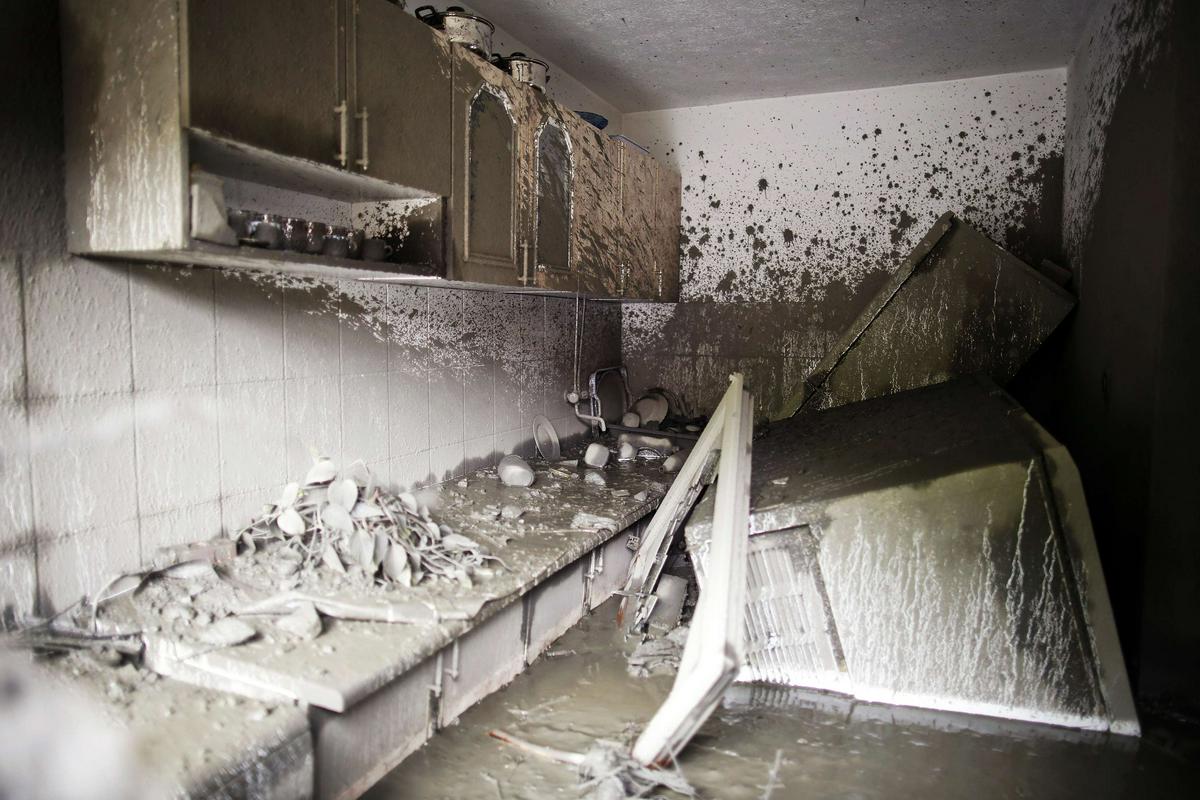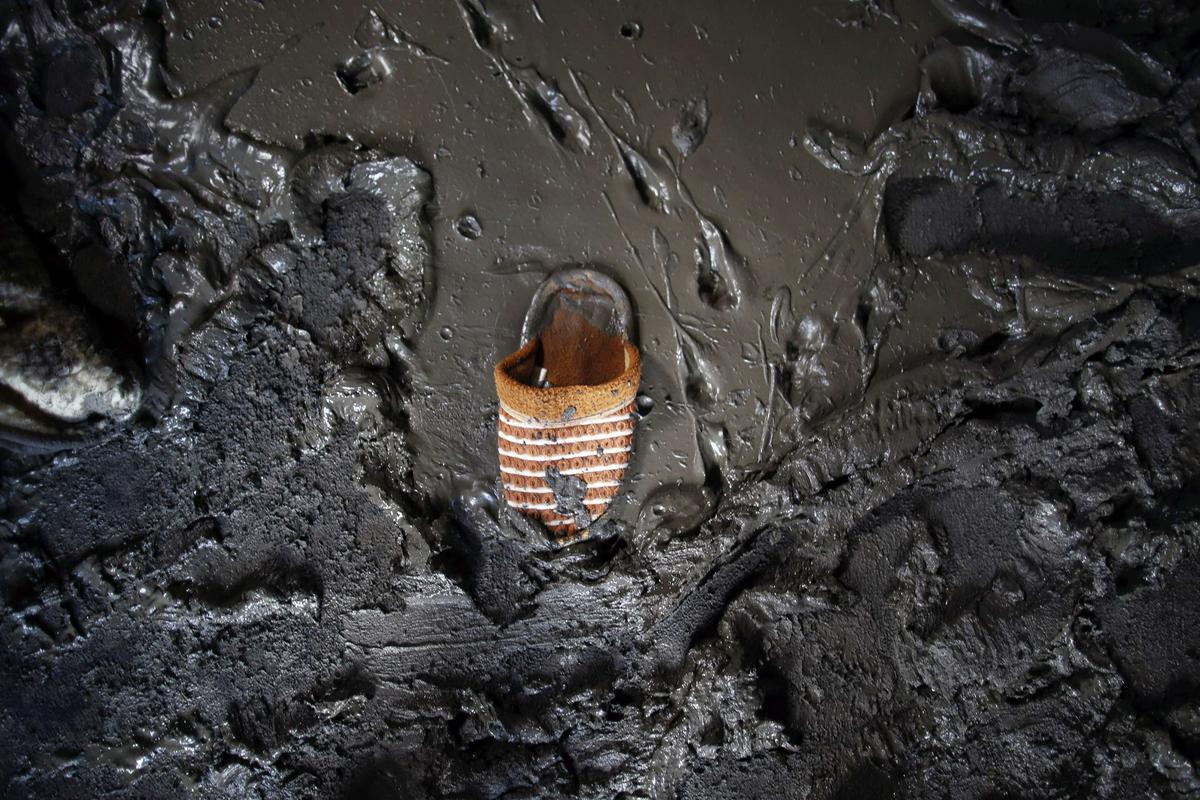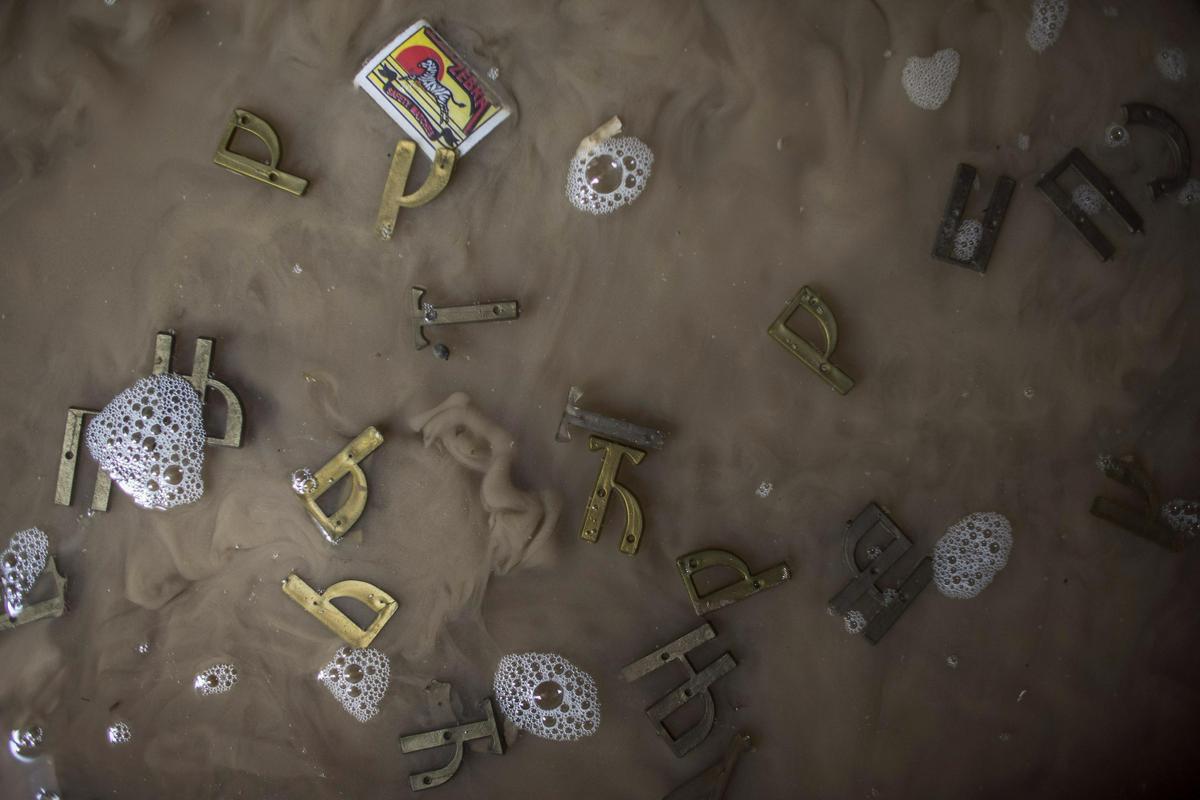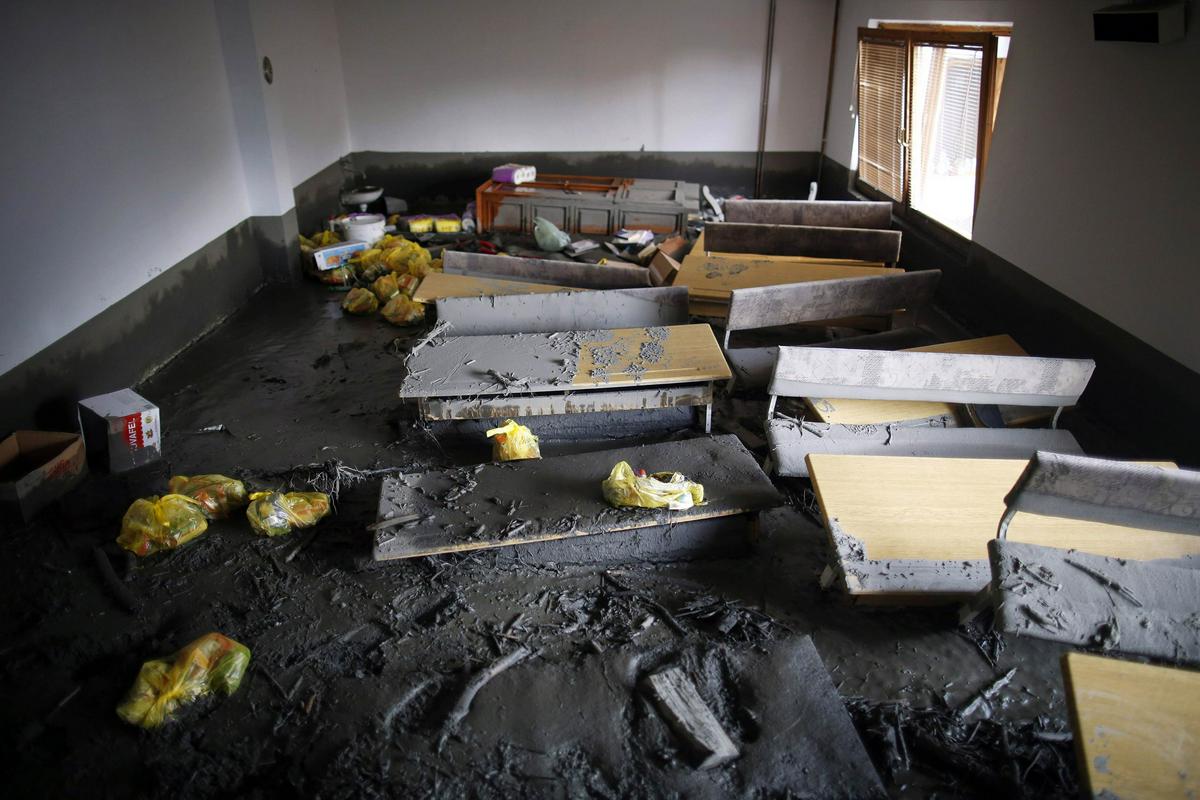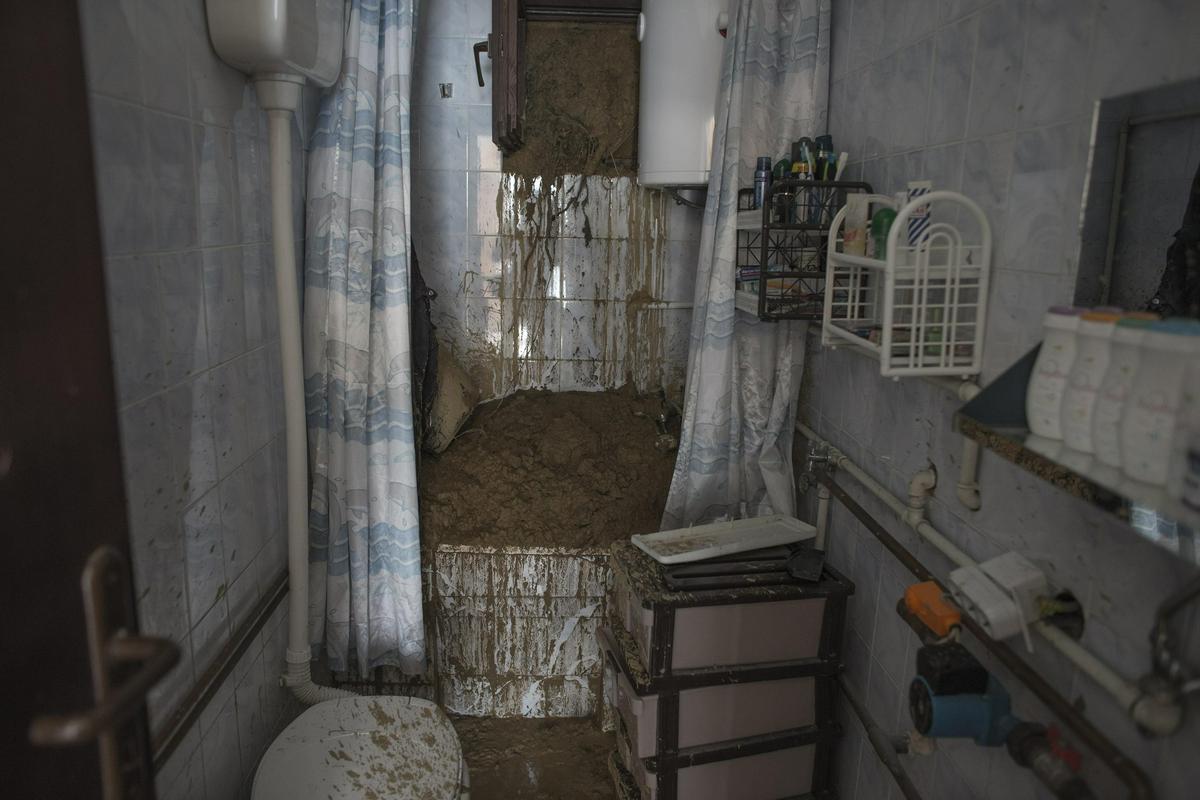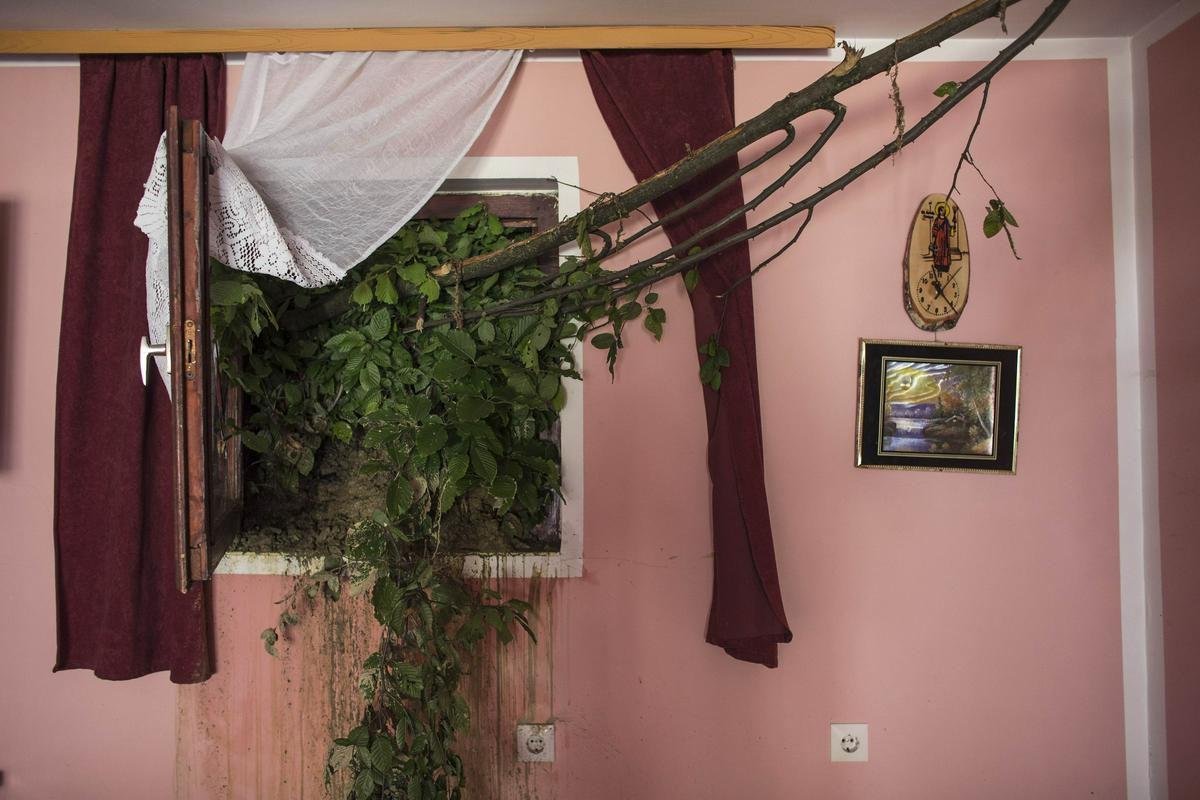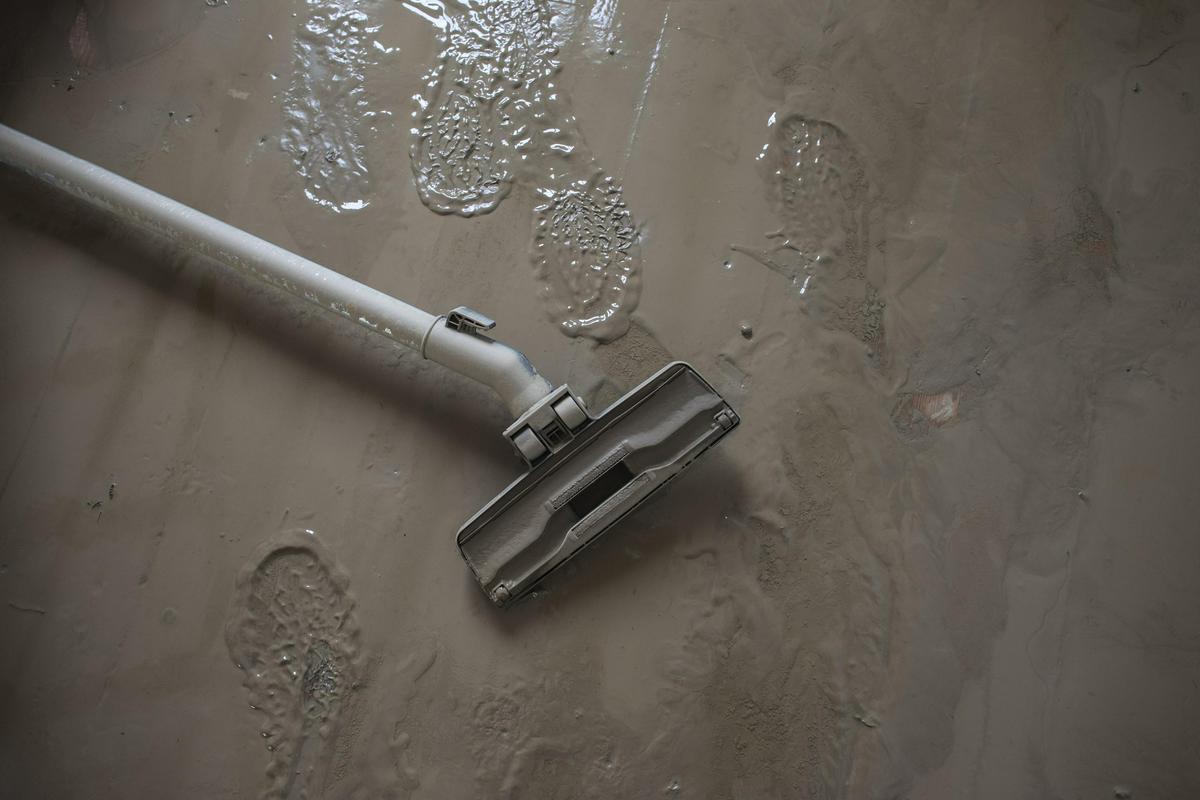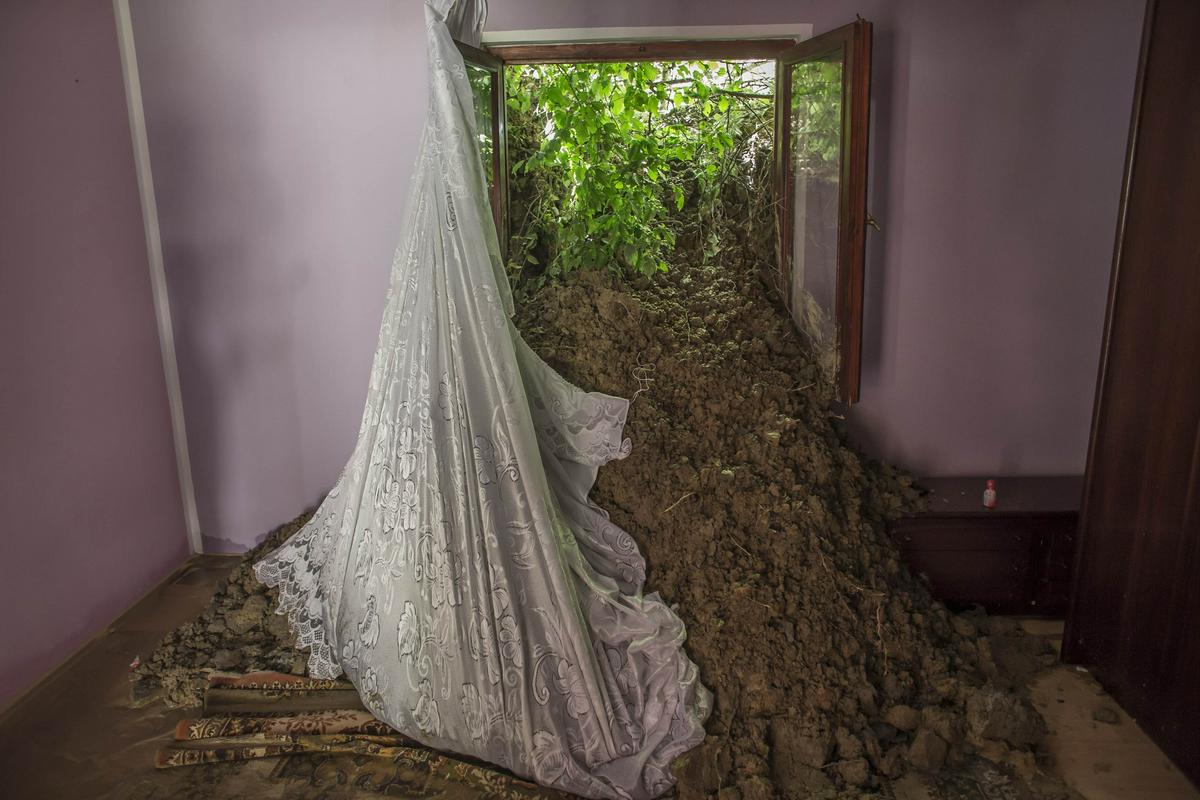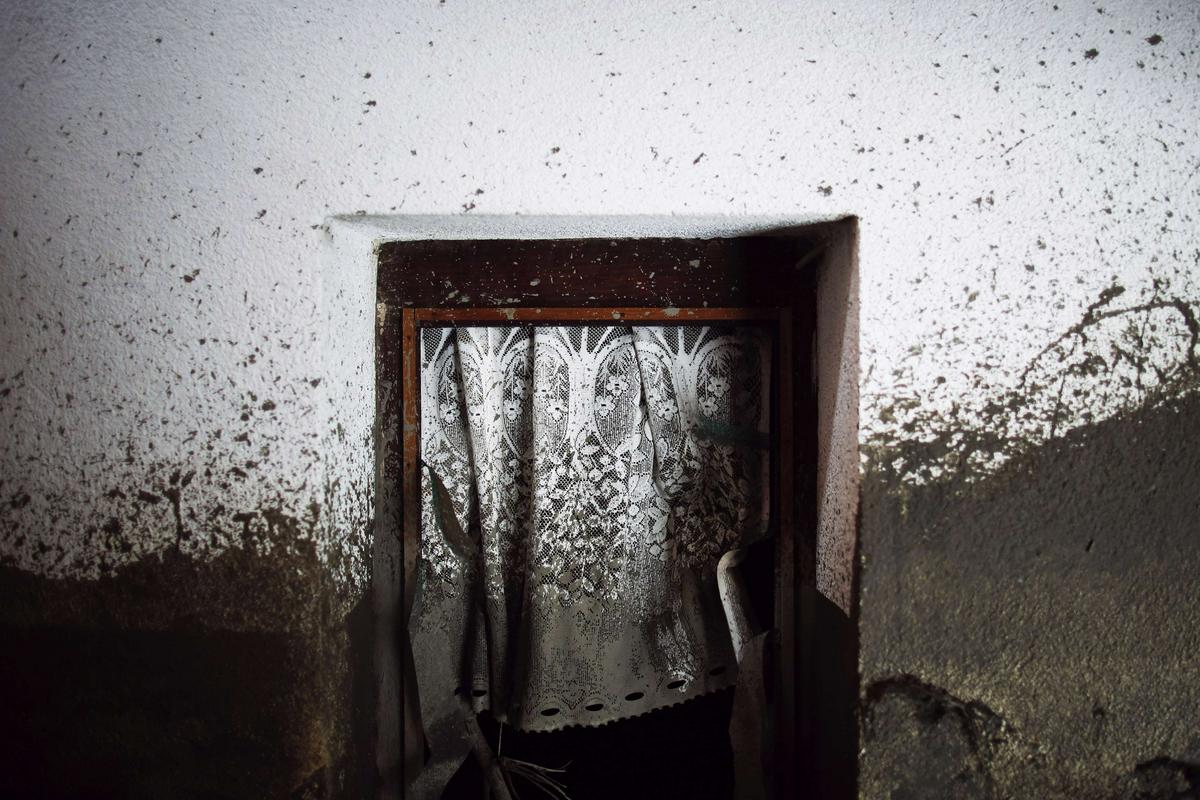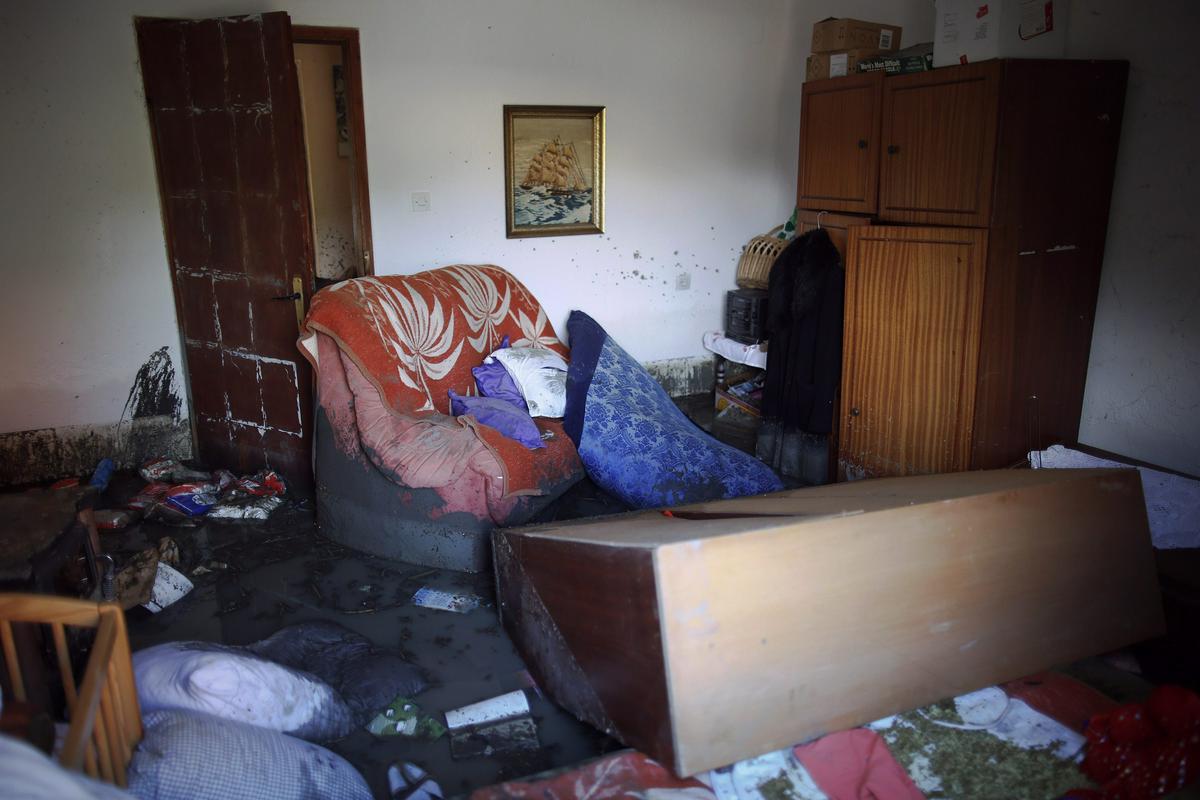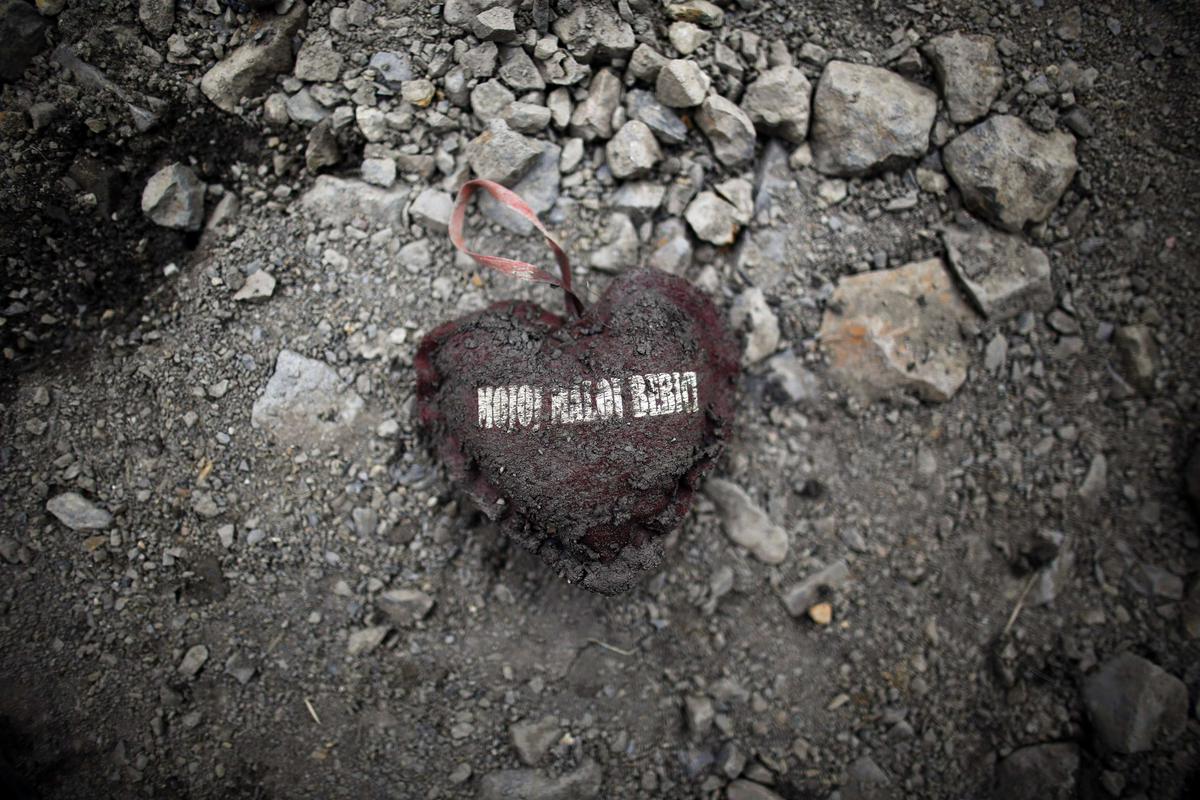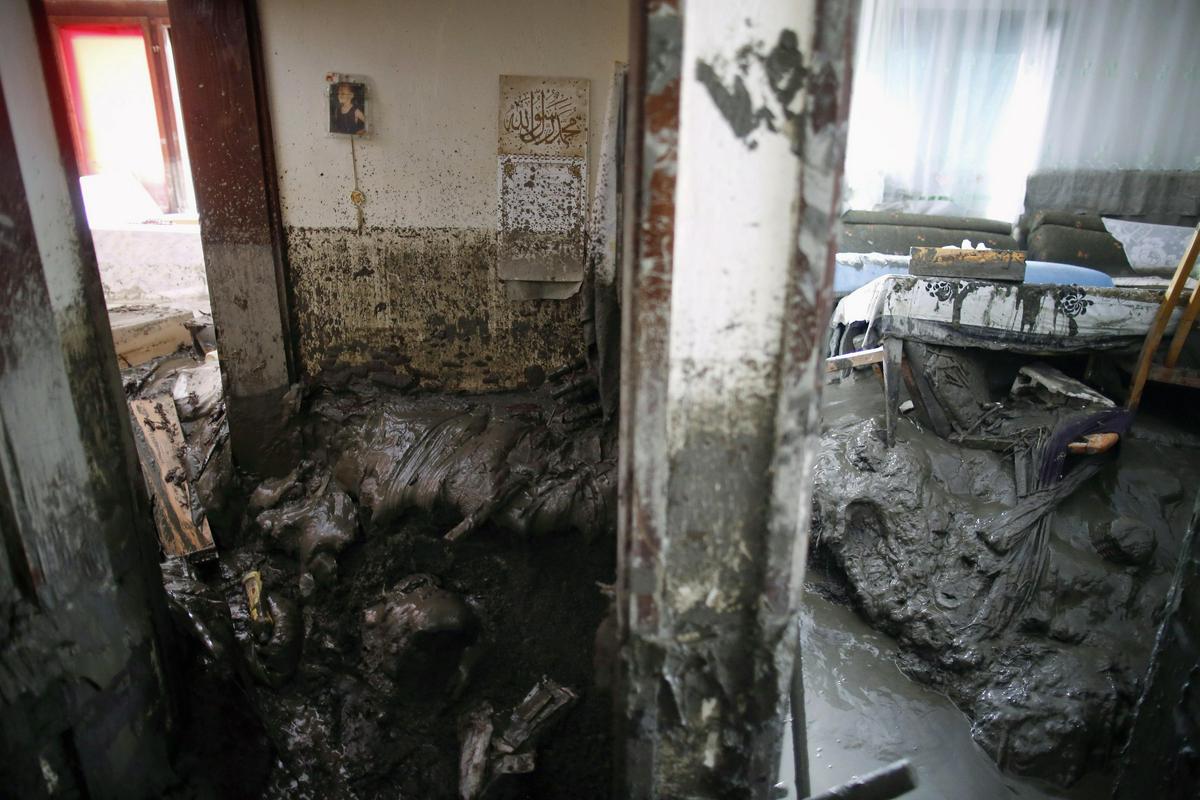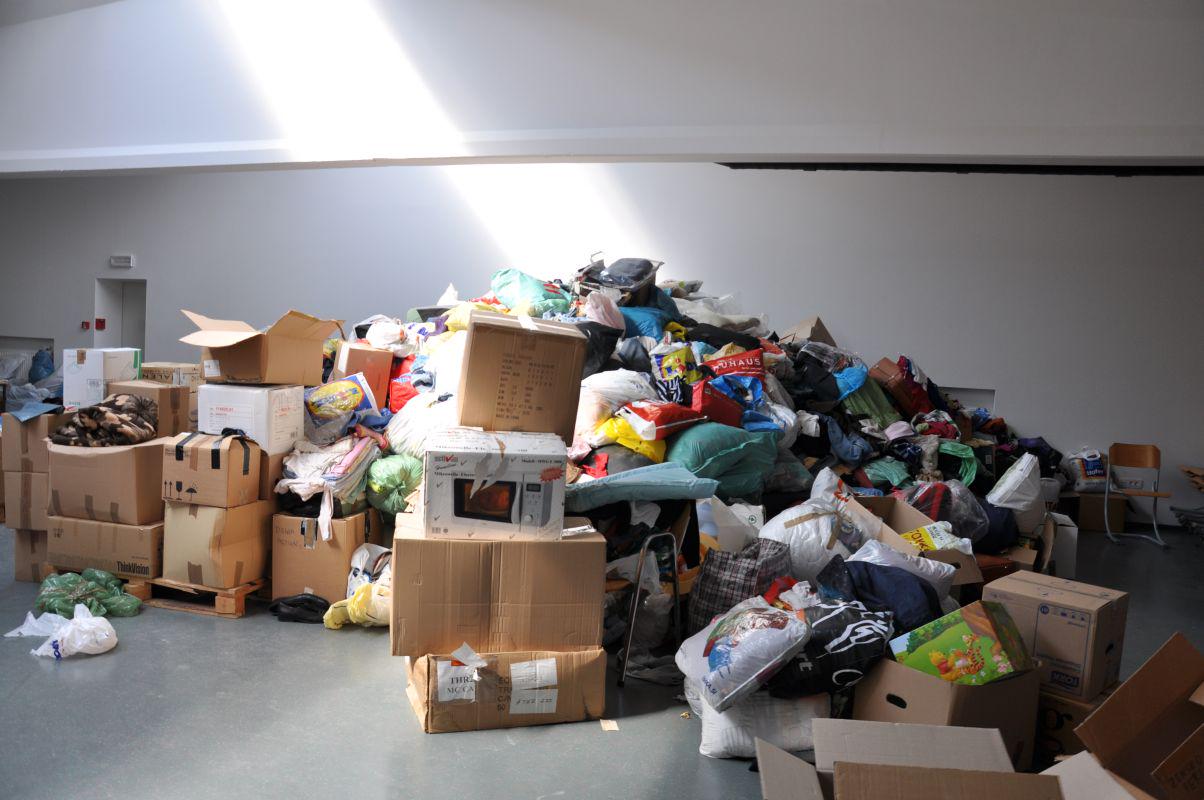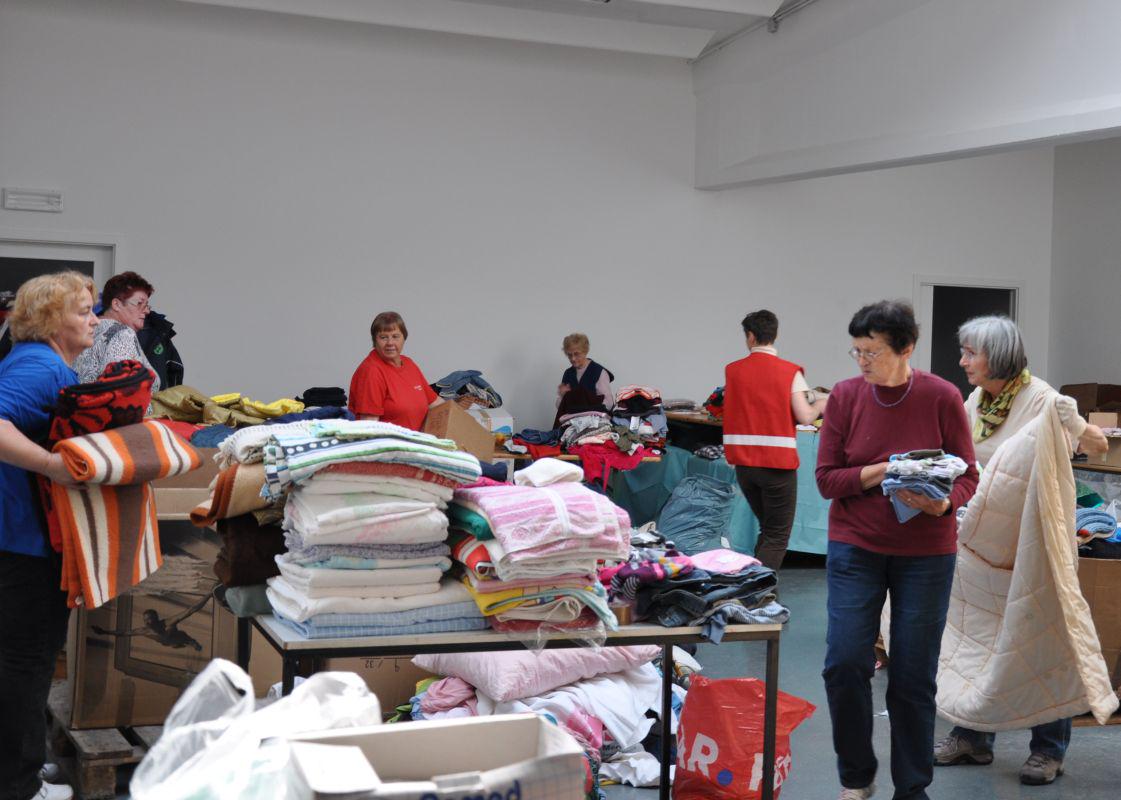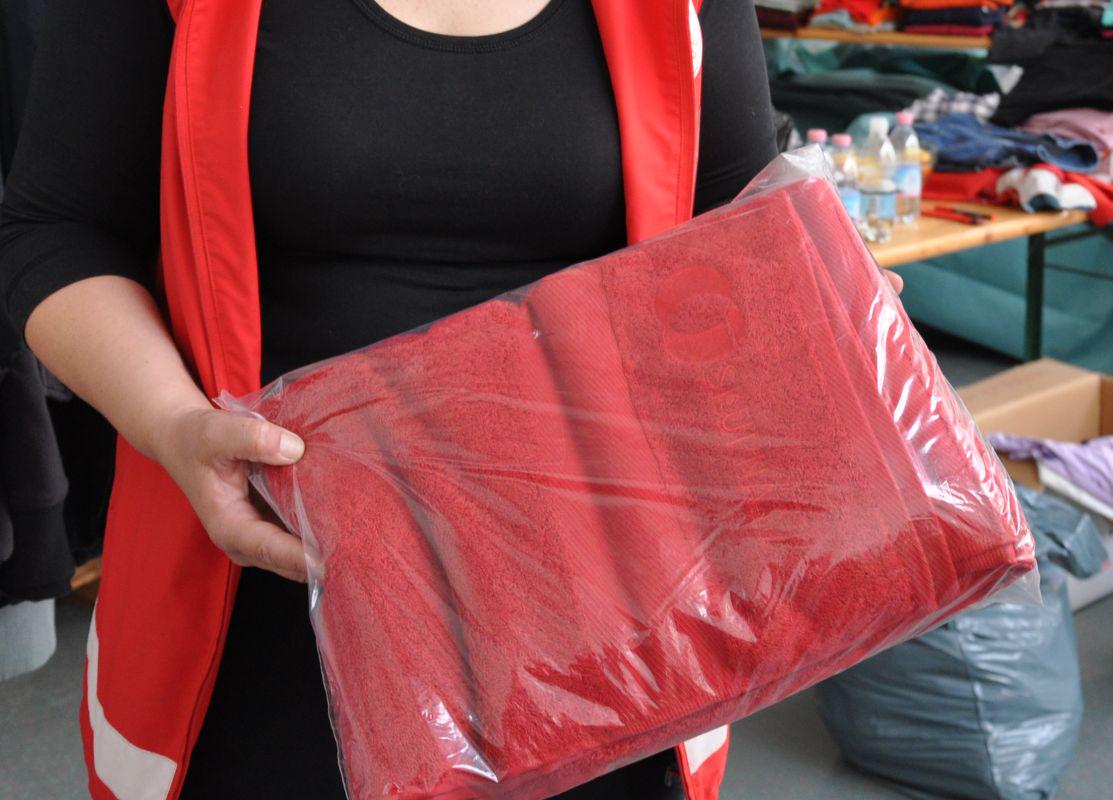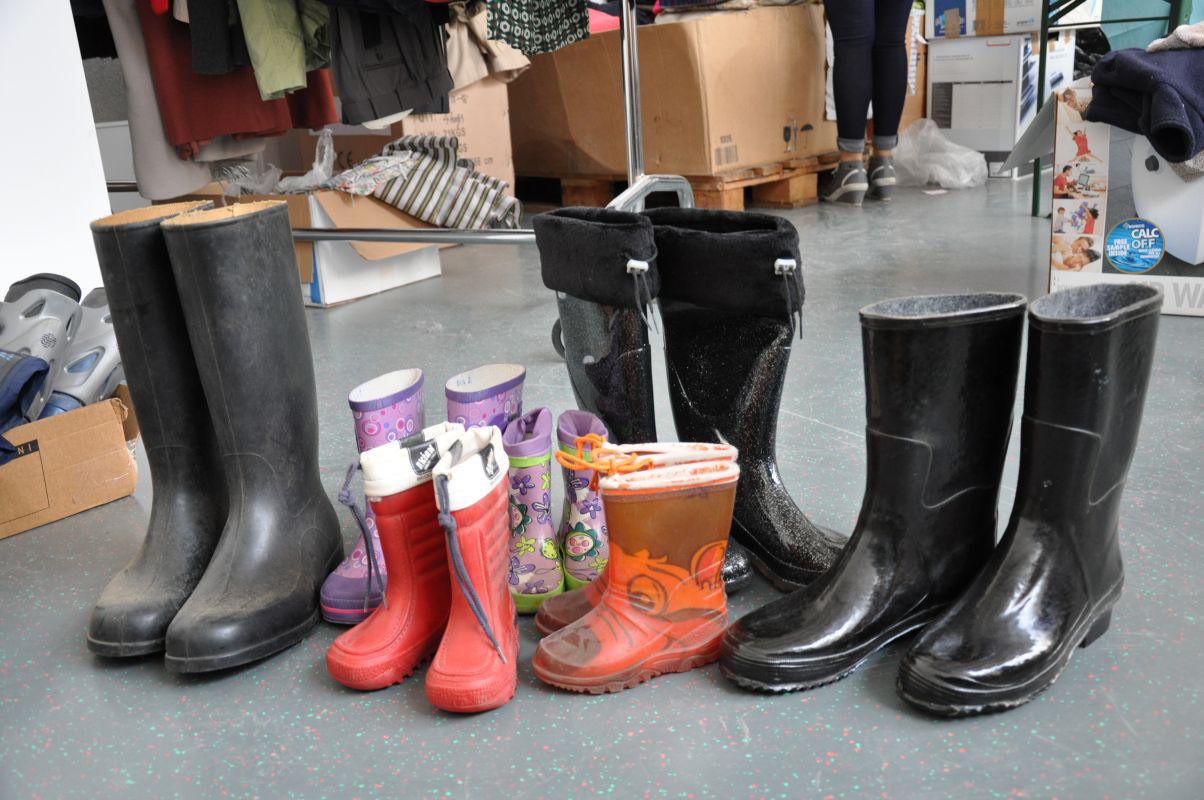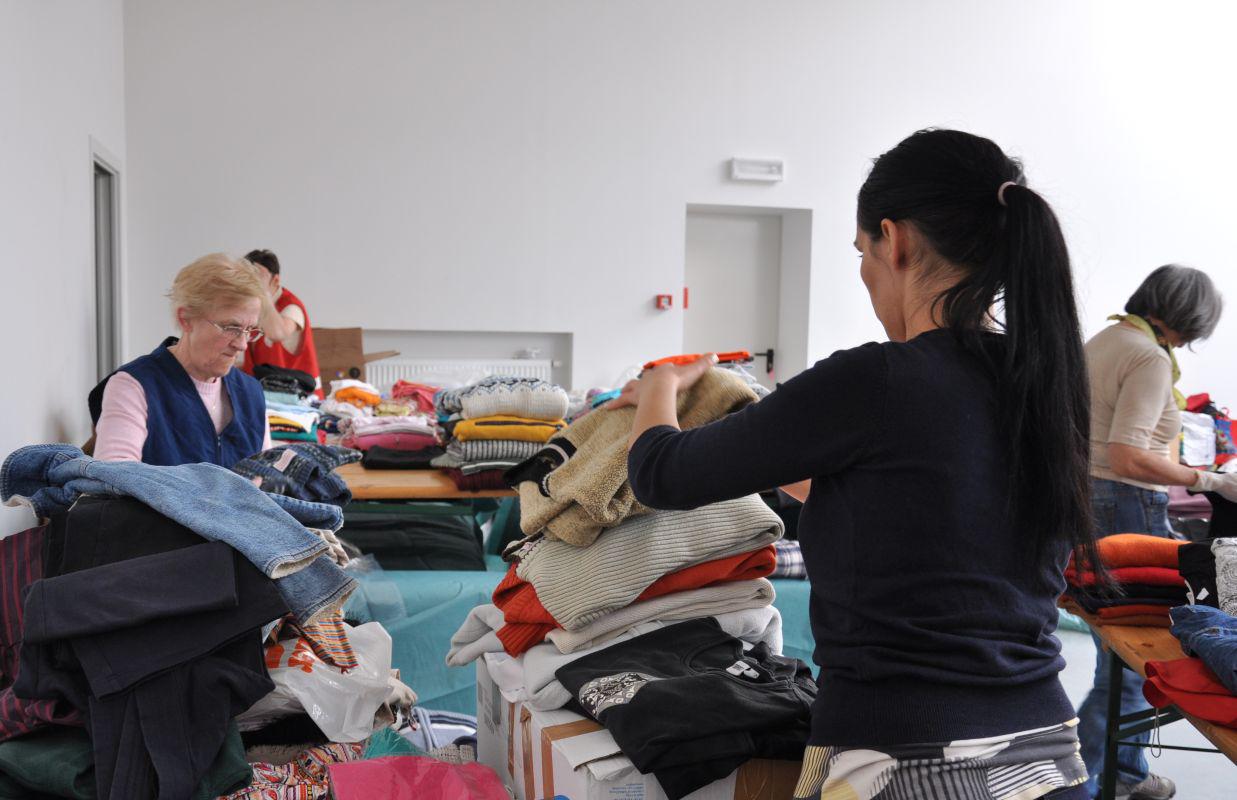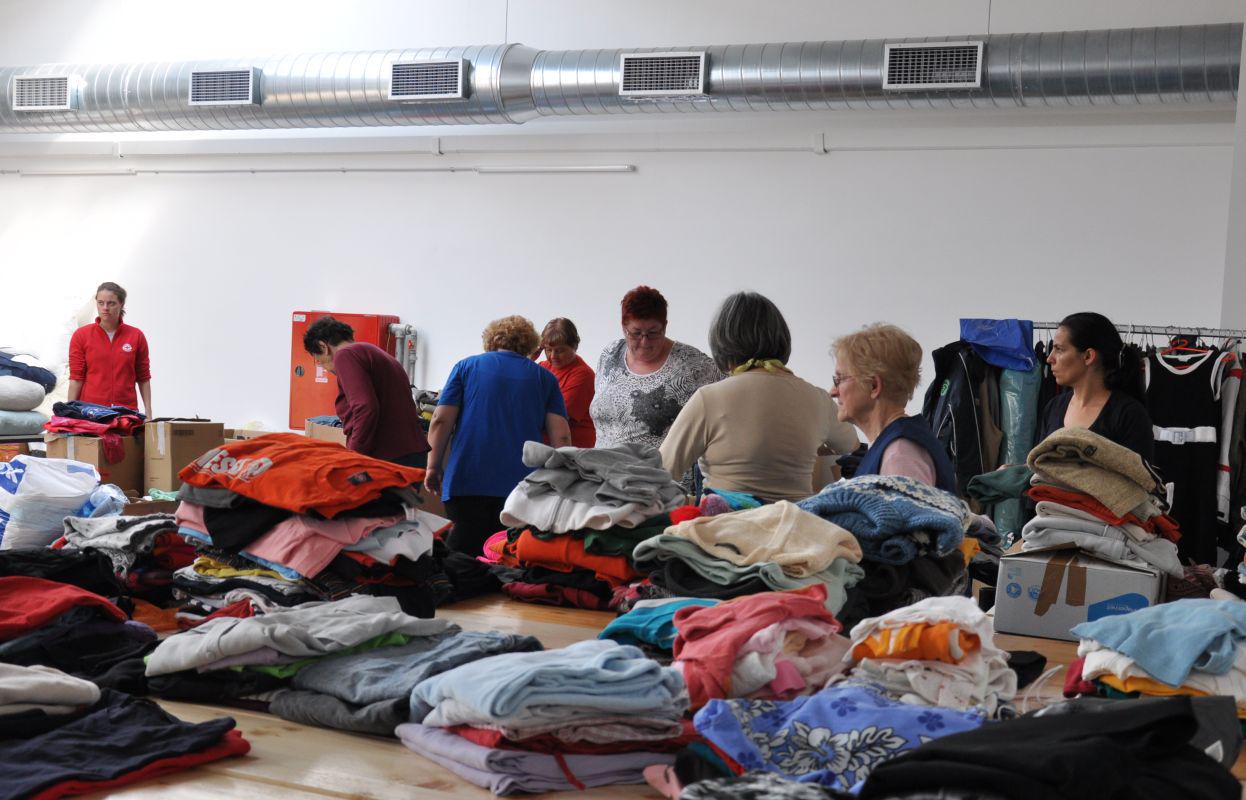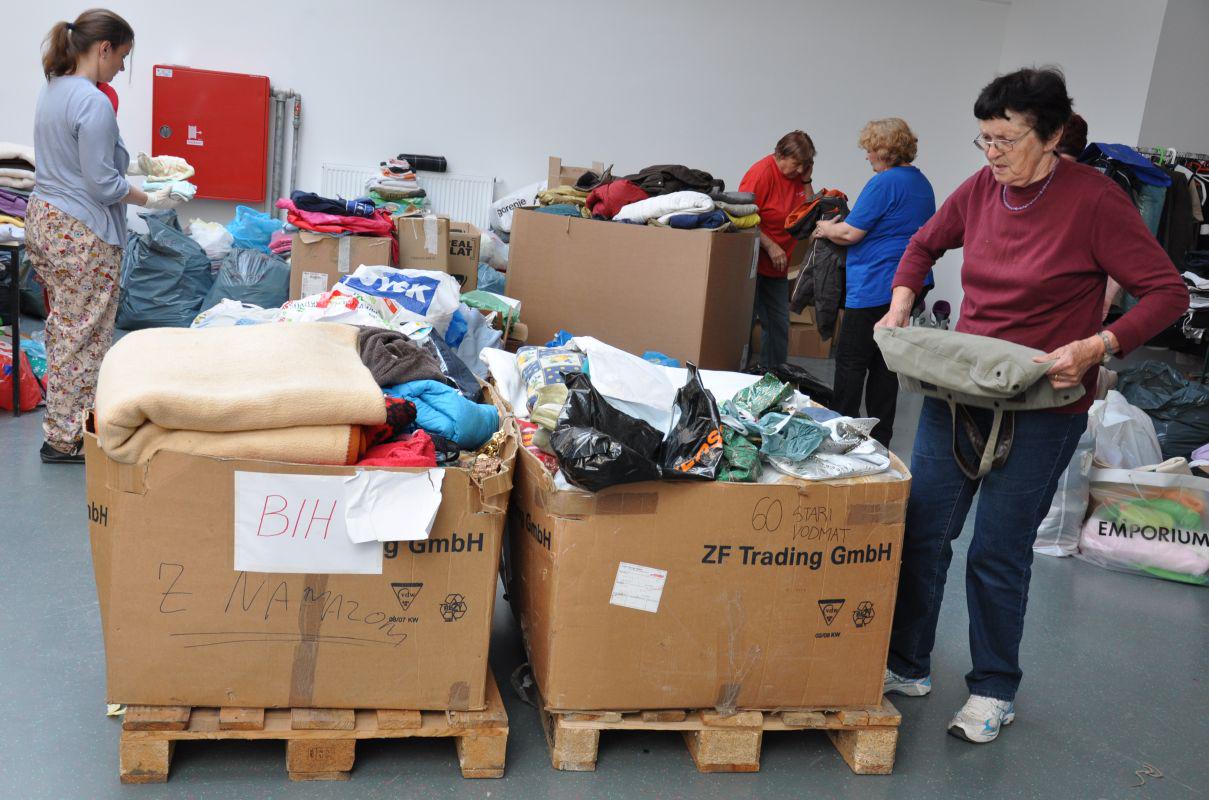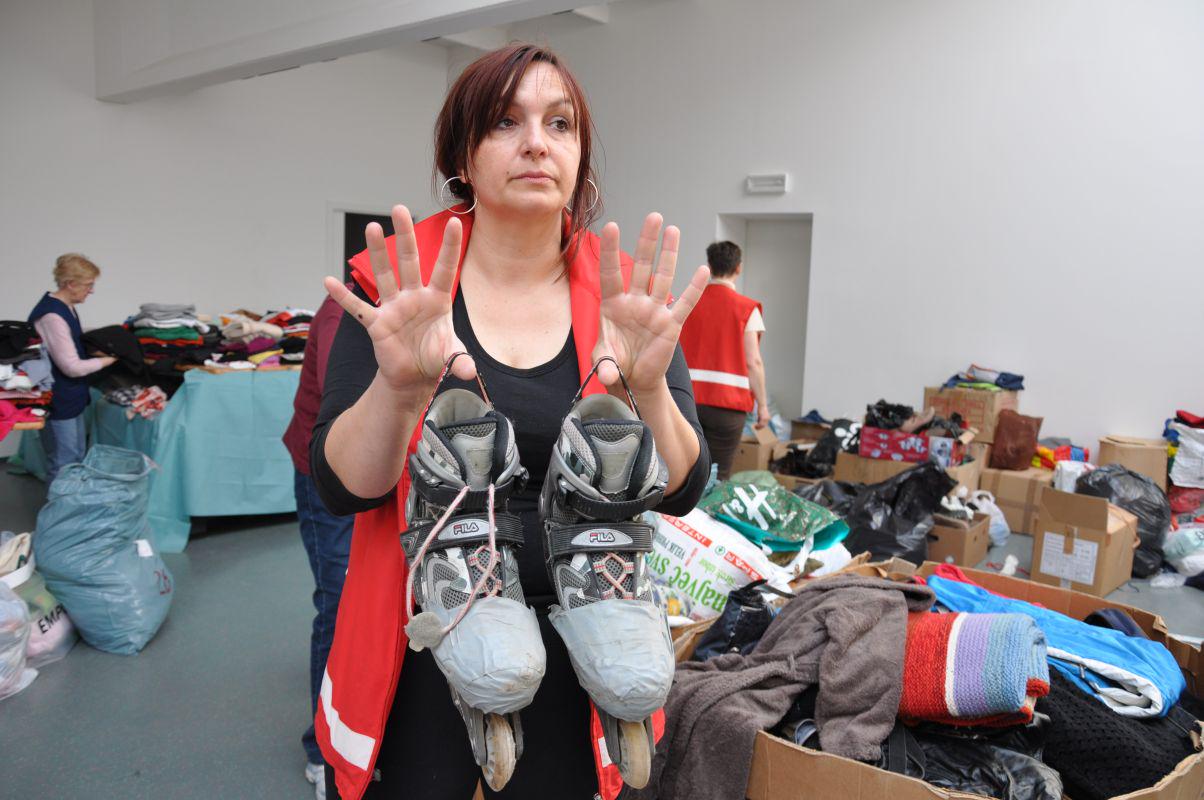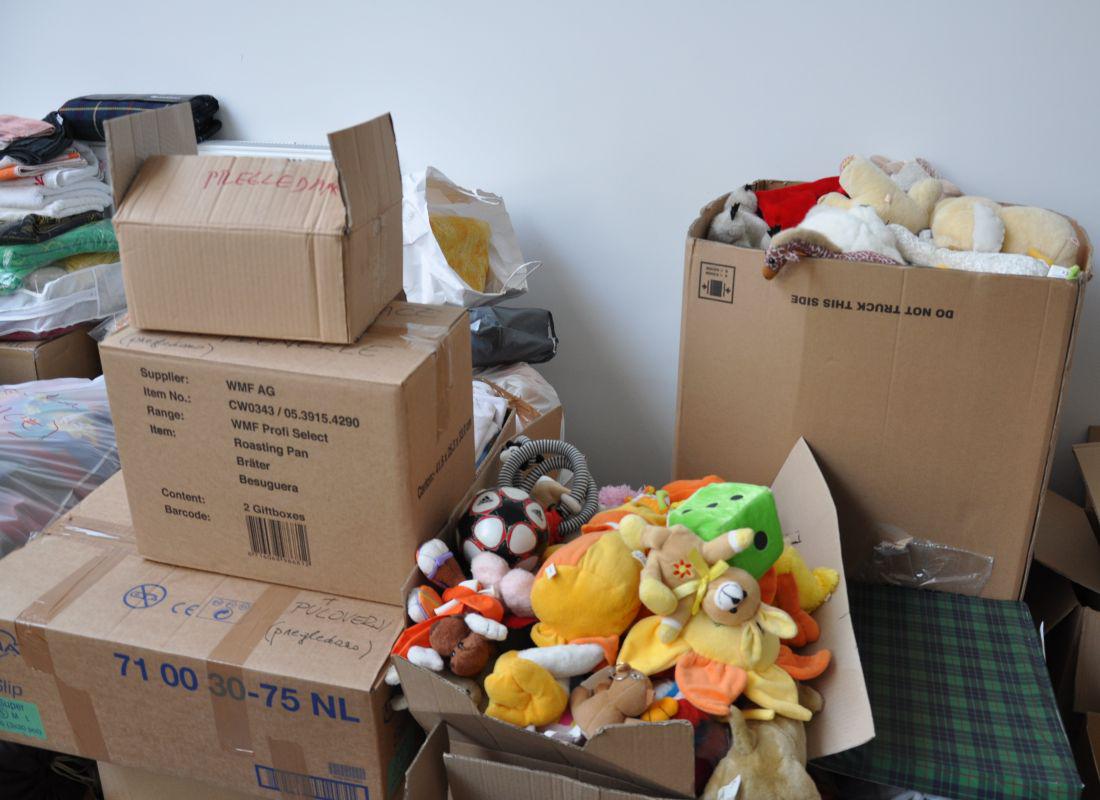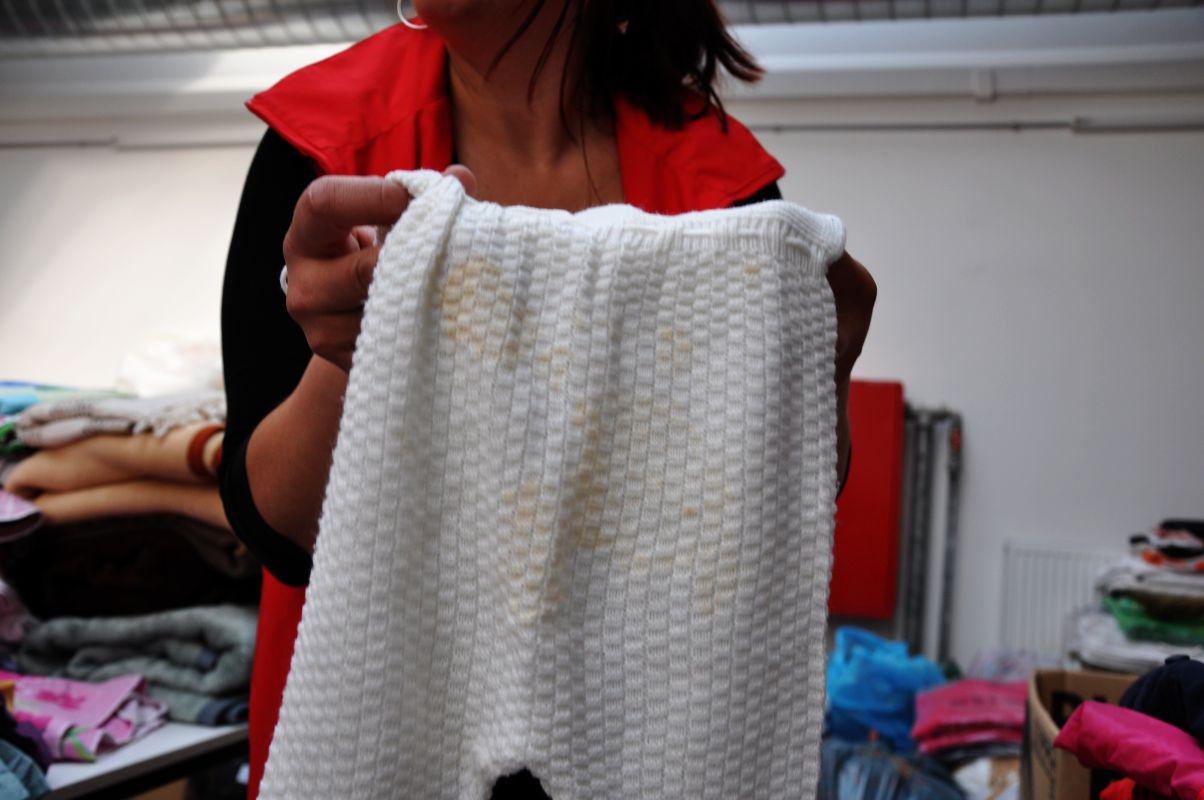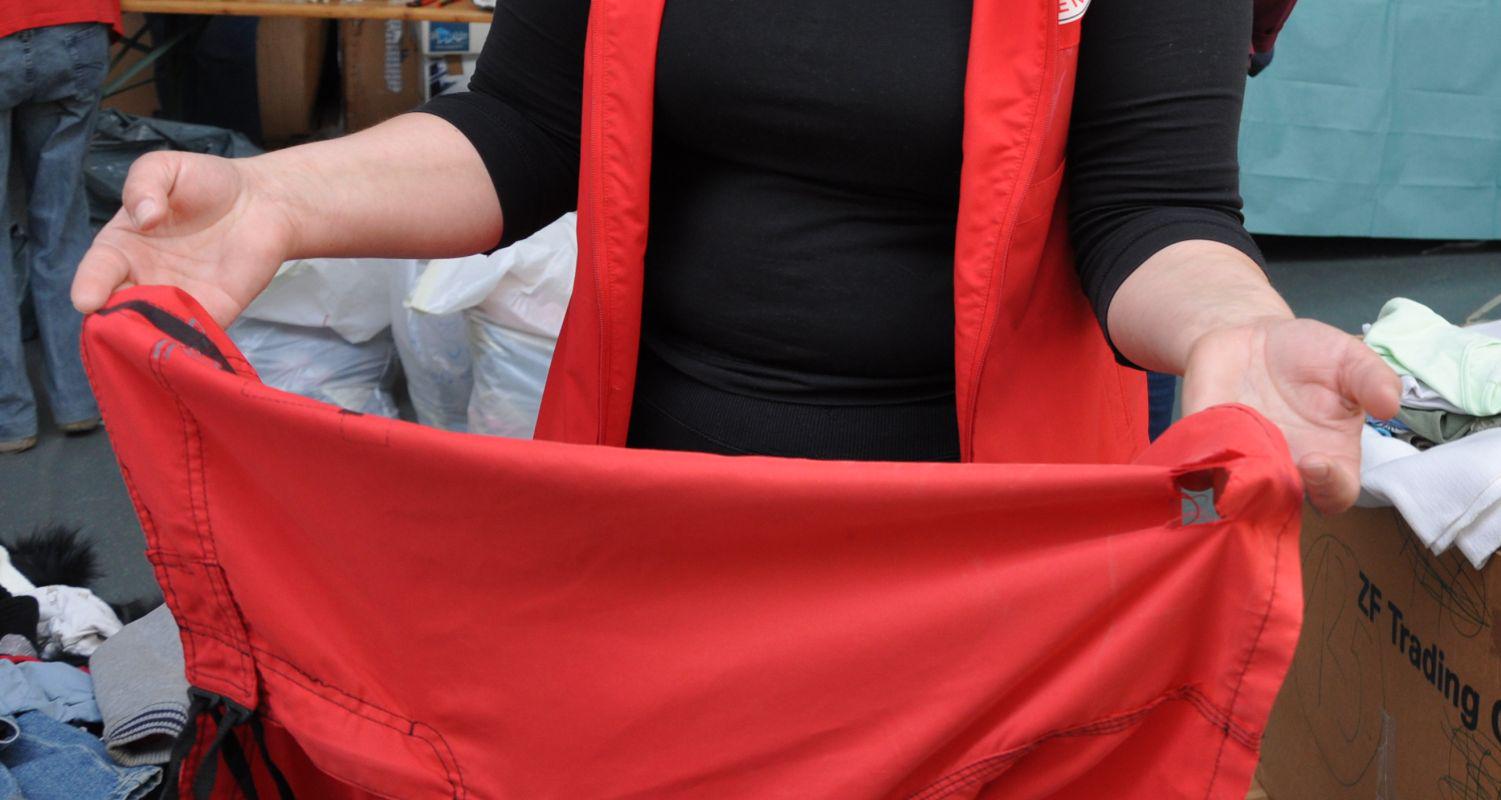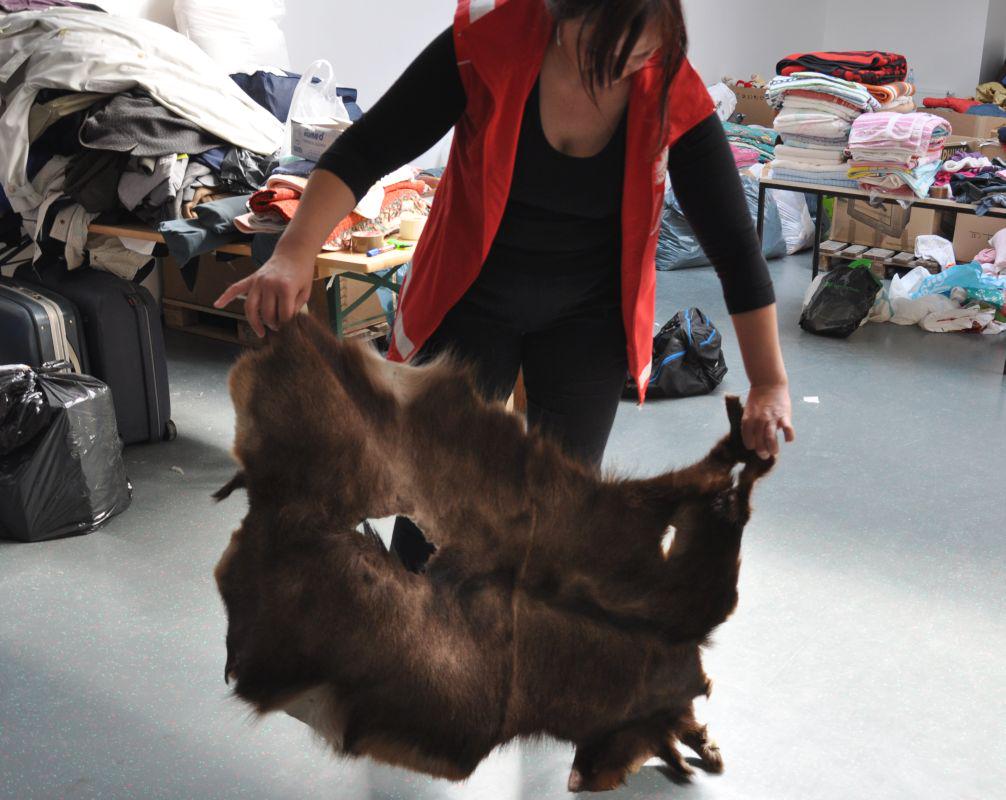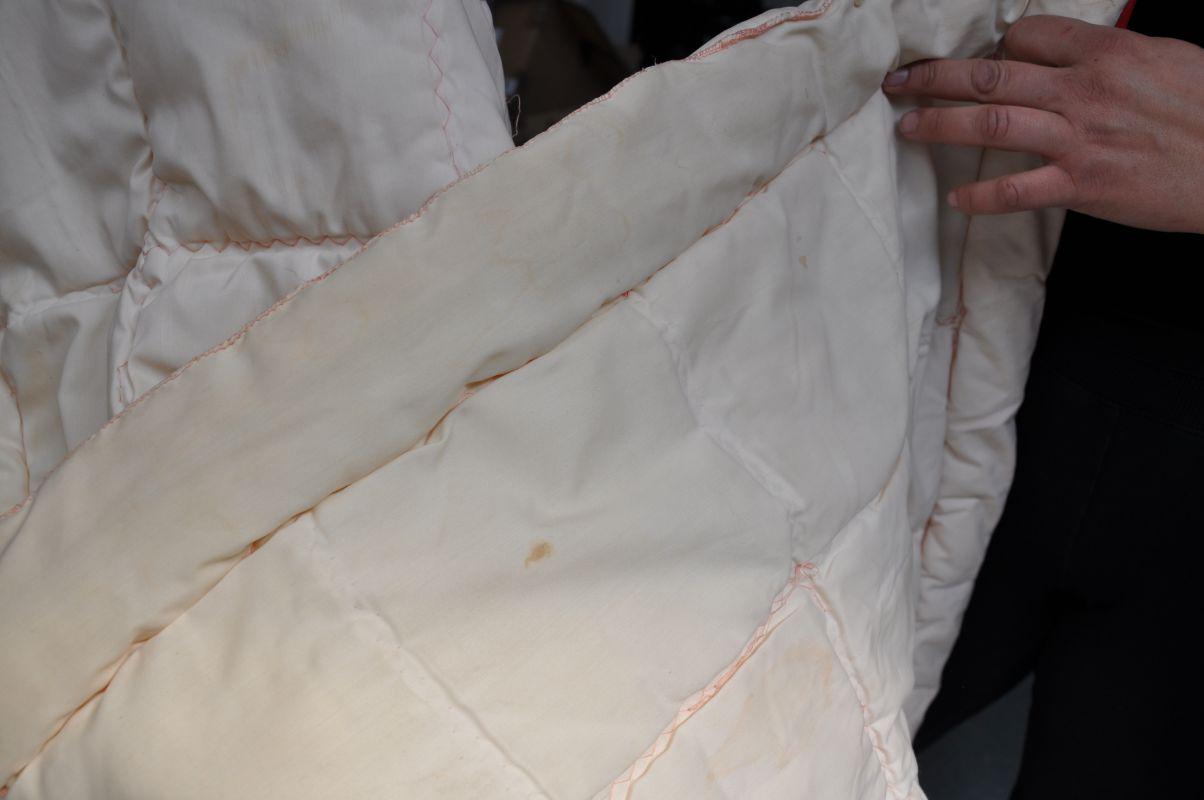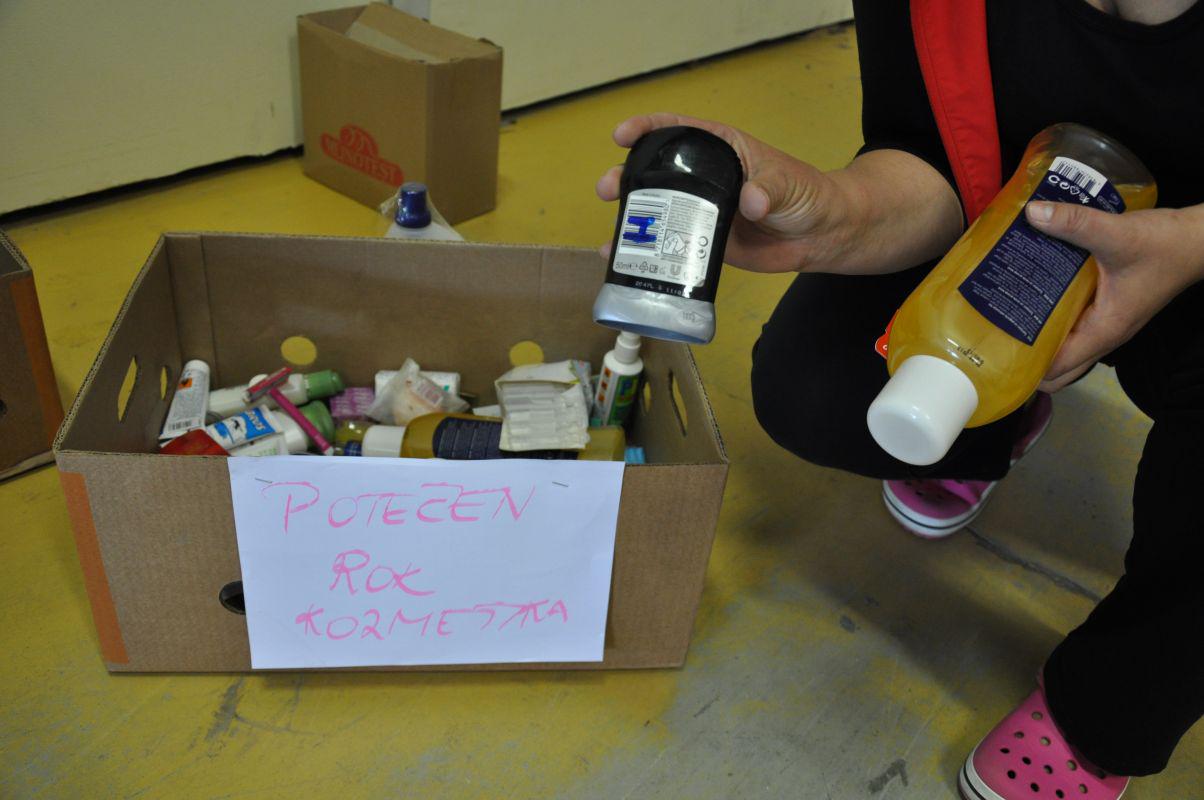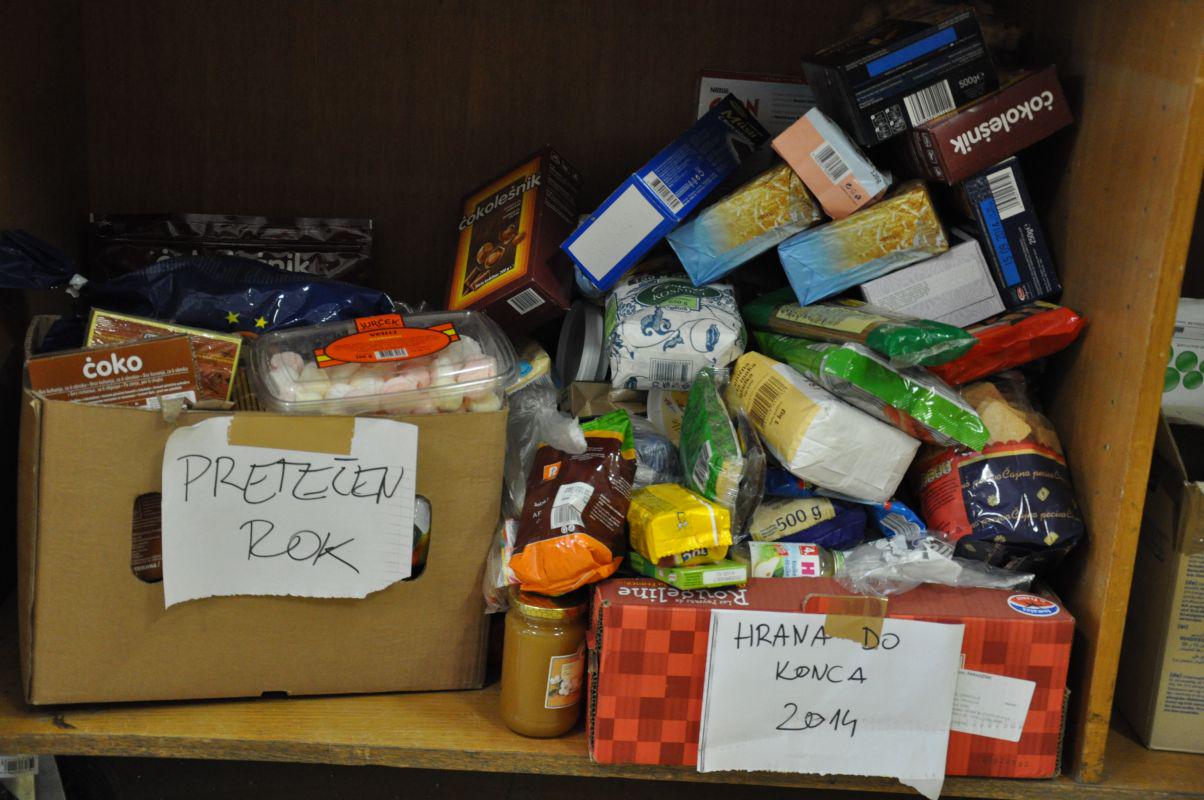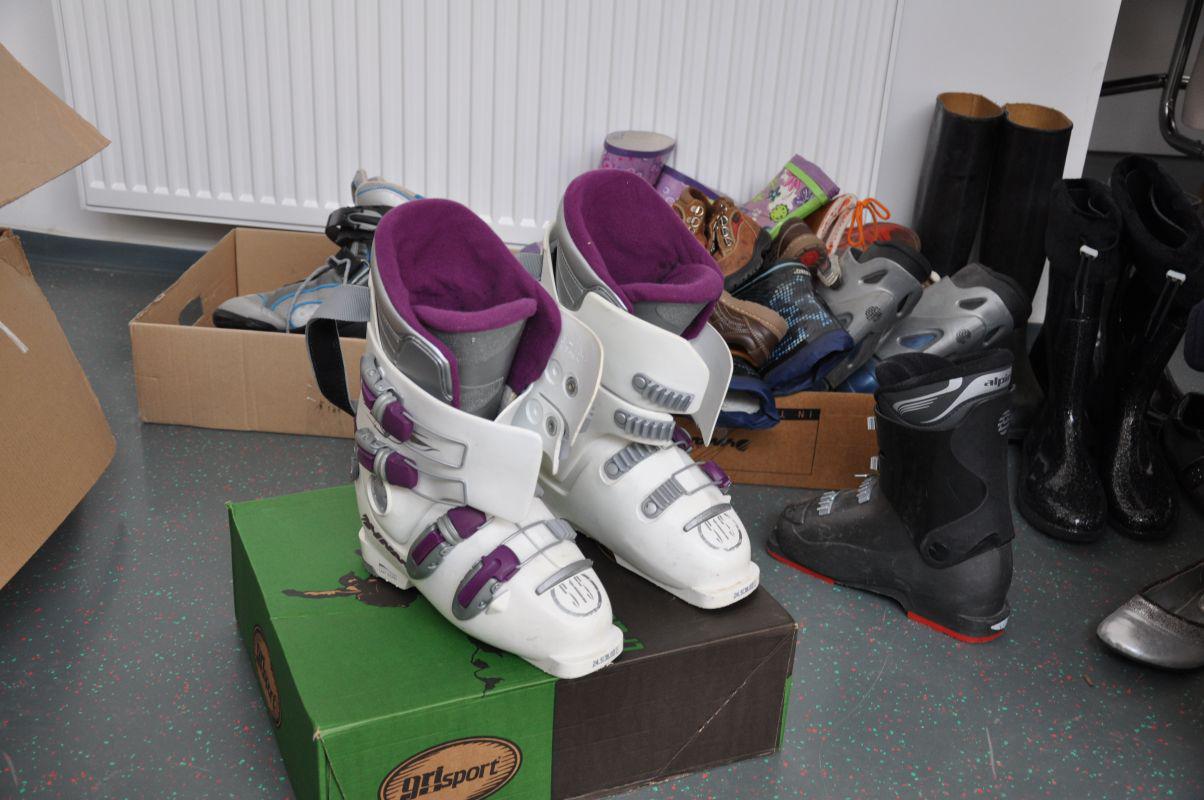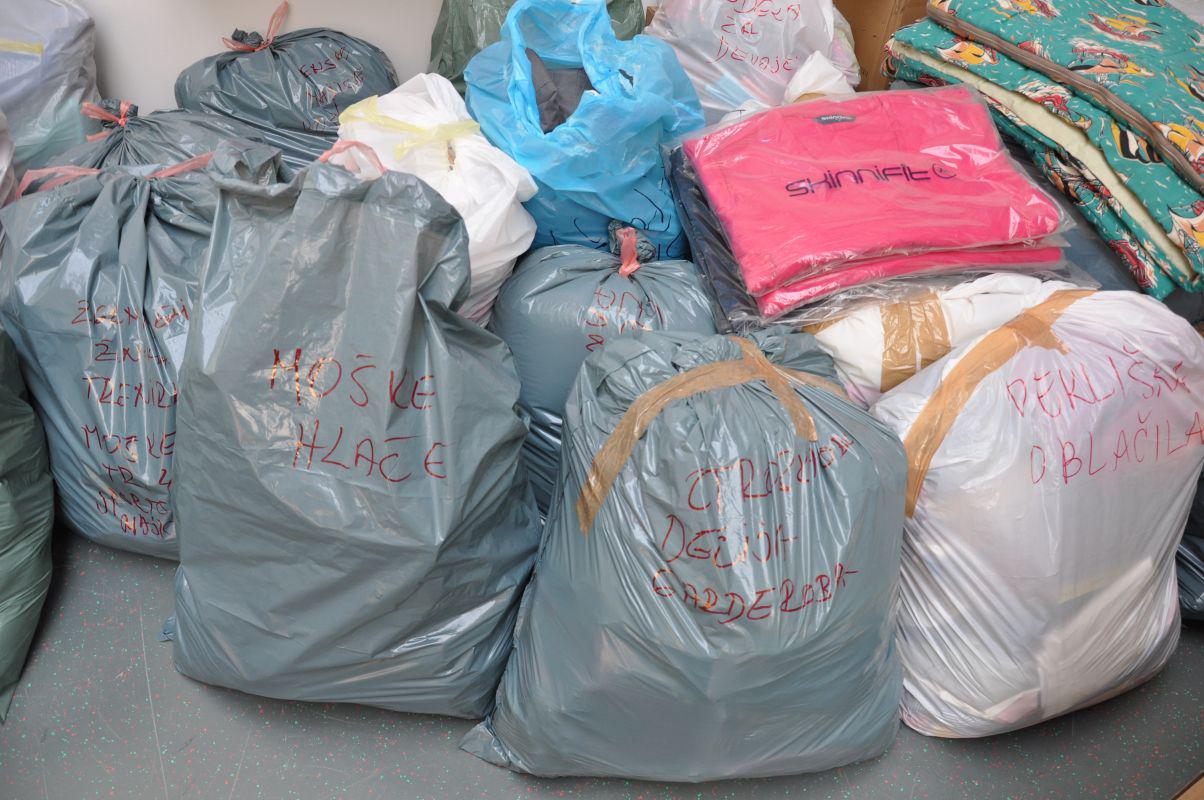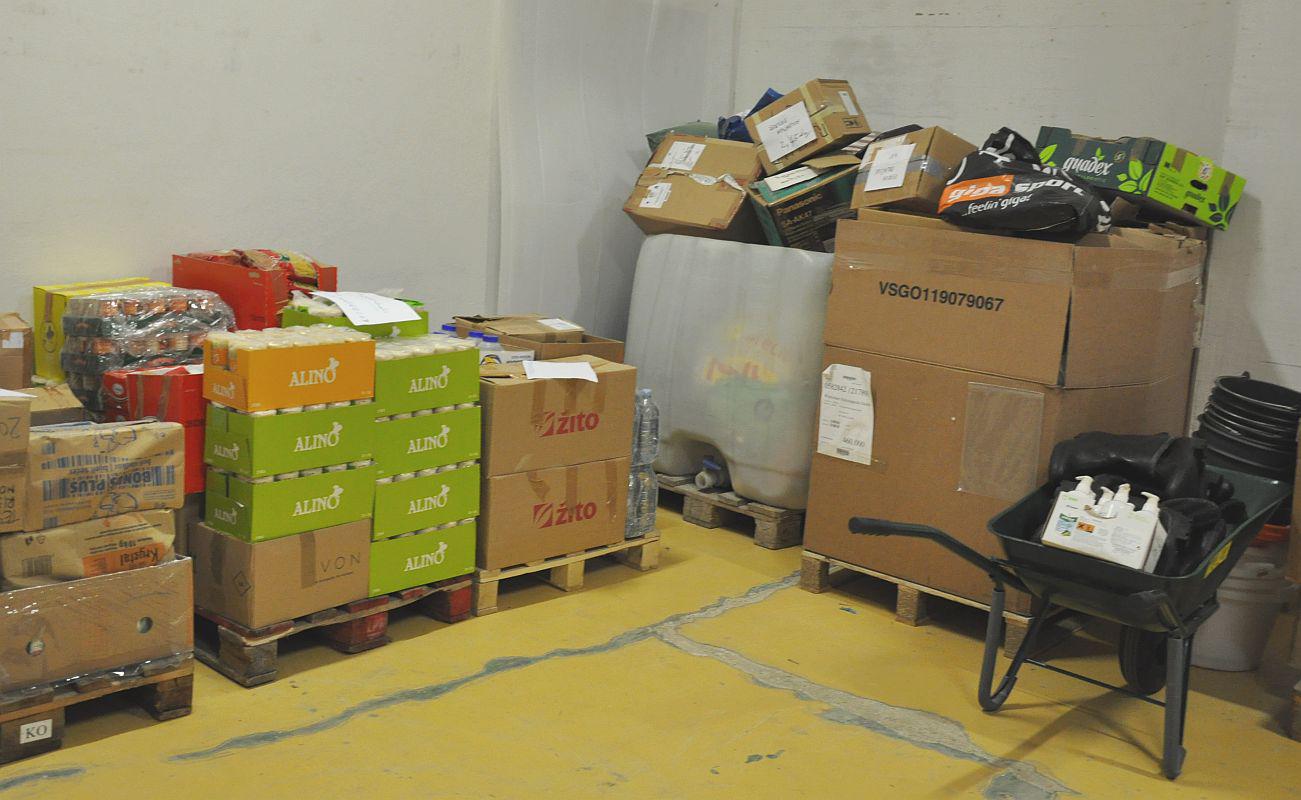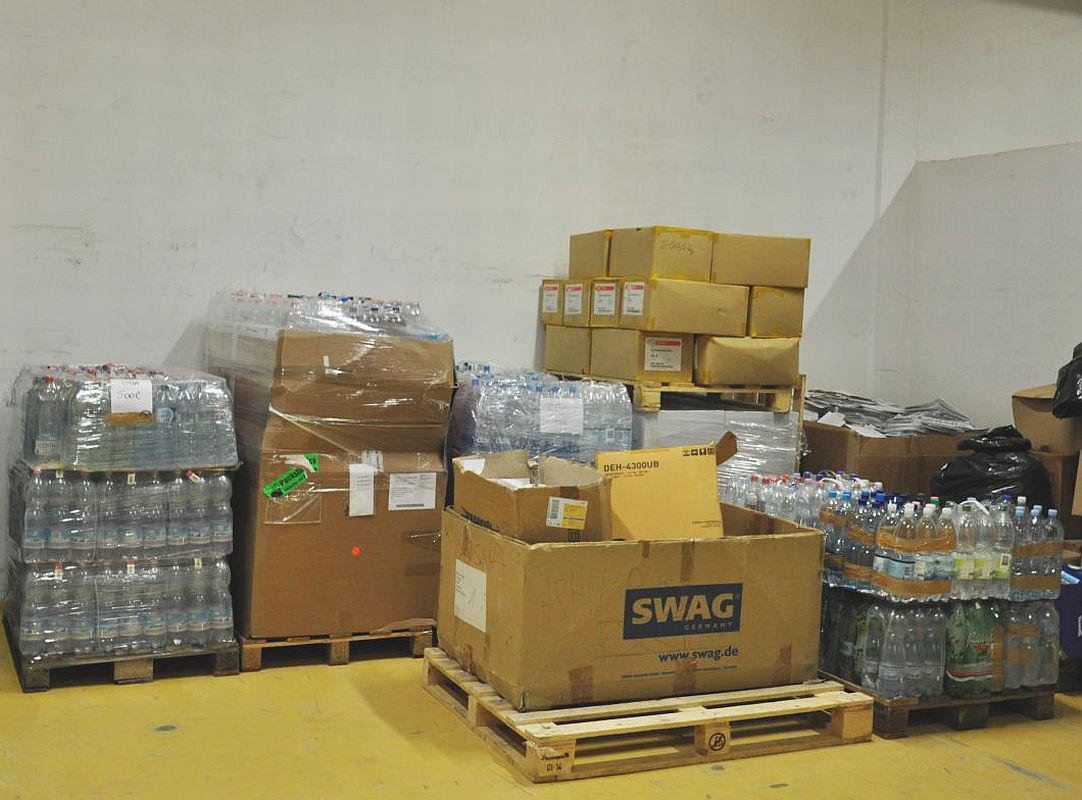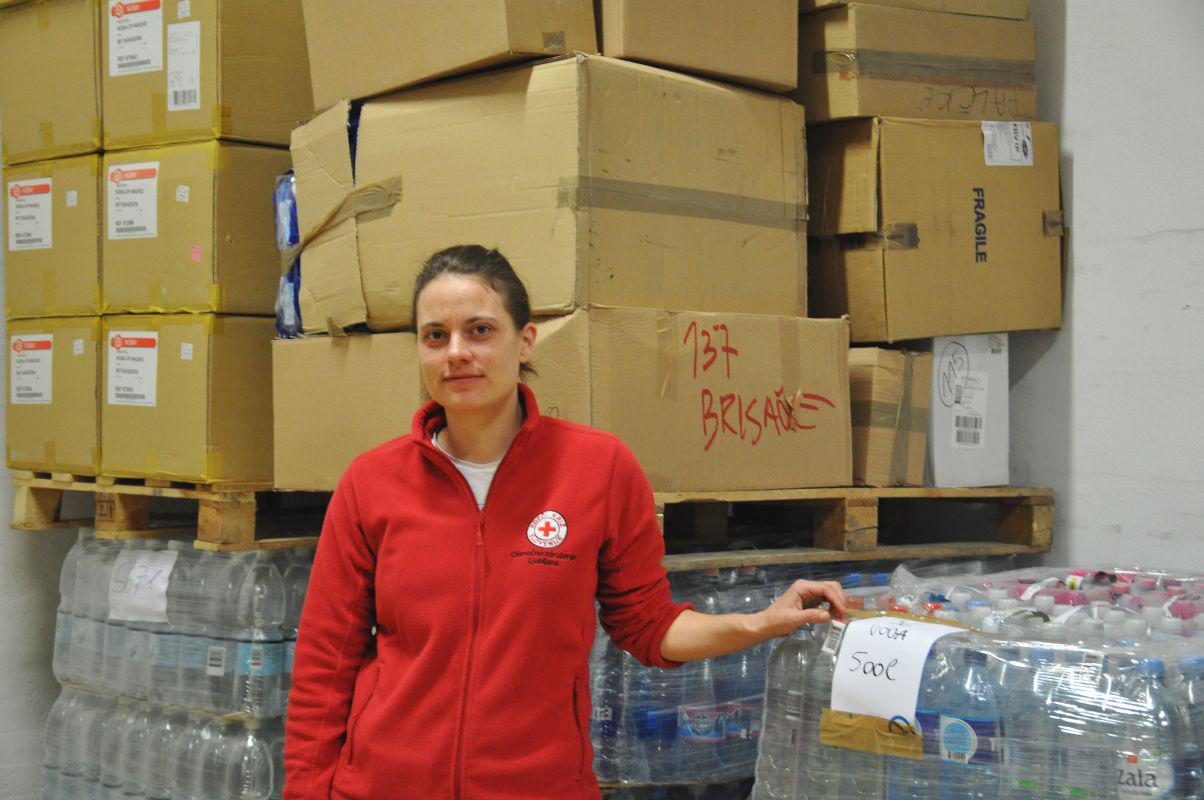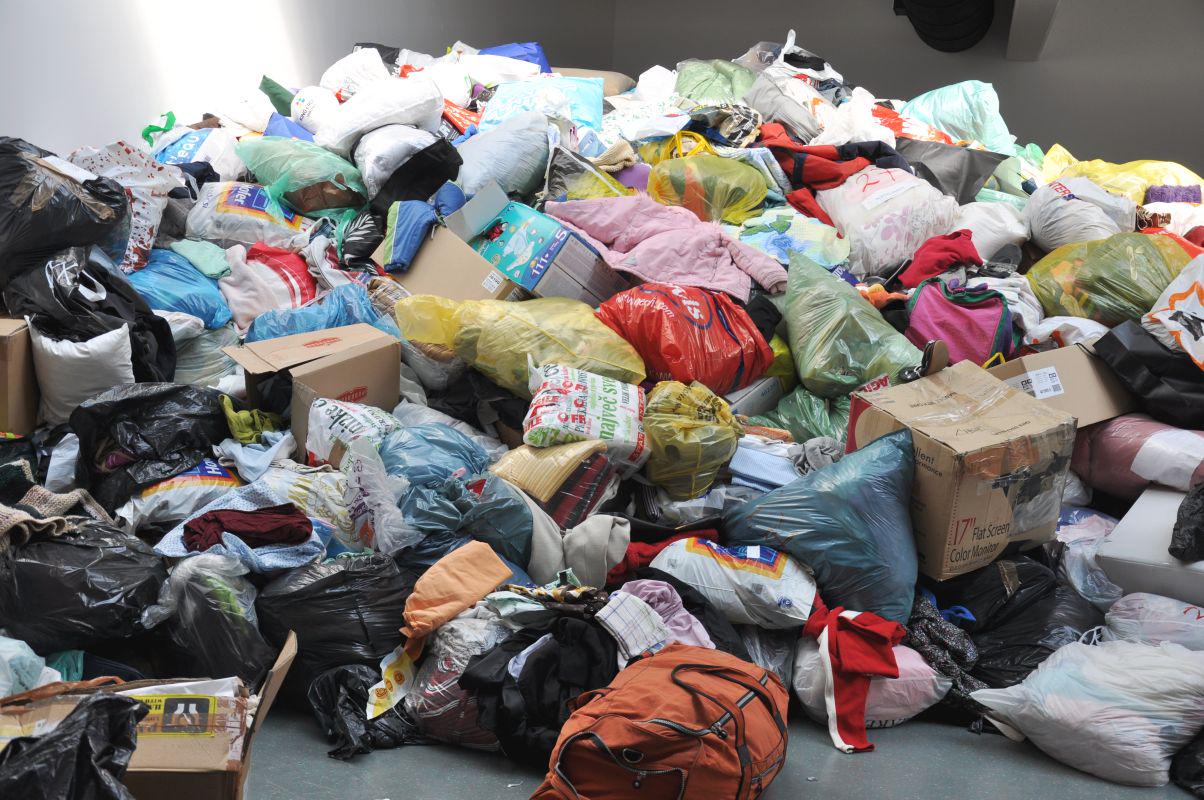
The main principle of humanitarian aid is to offer help with regards to the needs of the one we're trying to help. Although it sounds harsh, everything we hand over isn't good aid. For example clothes. We don't send clothes if we don't receive information from the field that clothes are needed. They have nowhere to store them. By sending clothes, we would only put more burden on them than actually do something good.
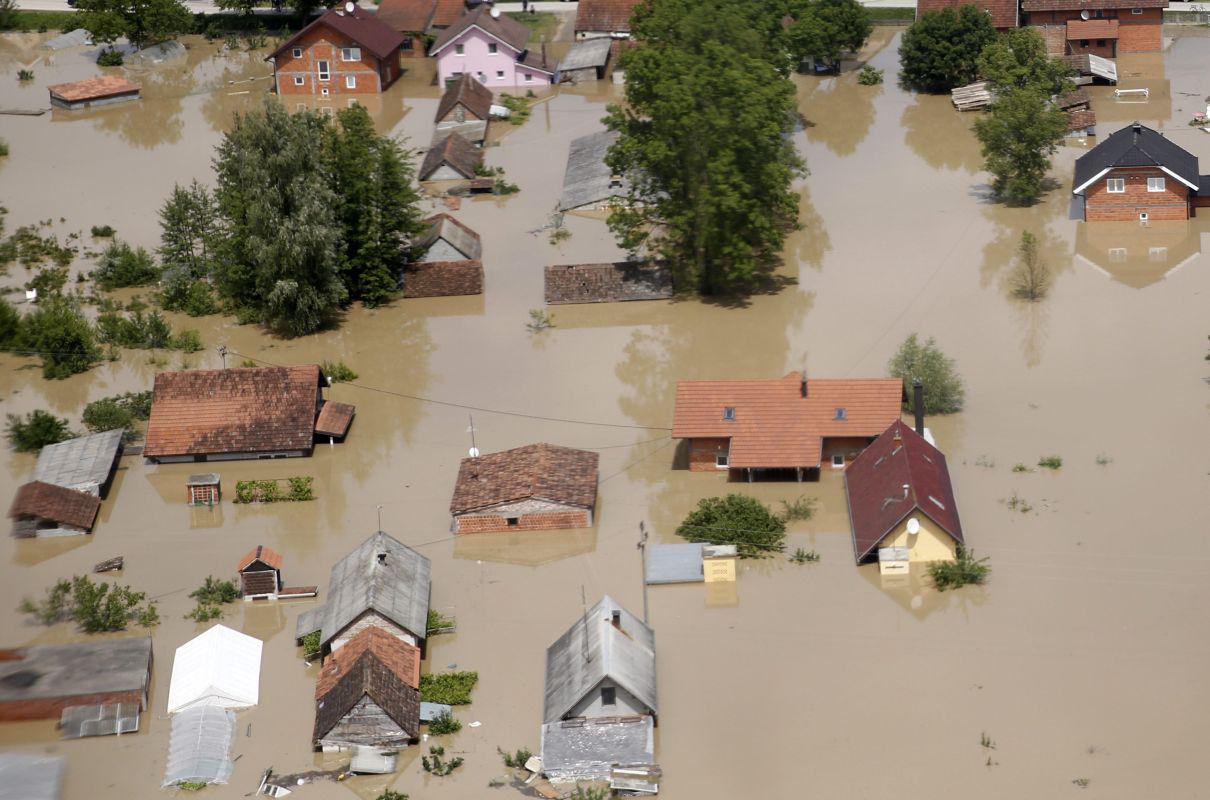
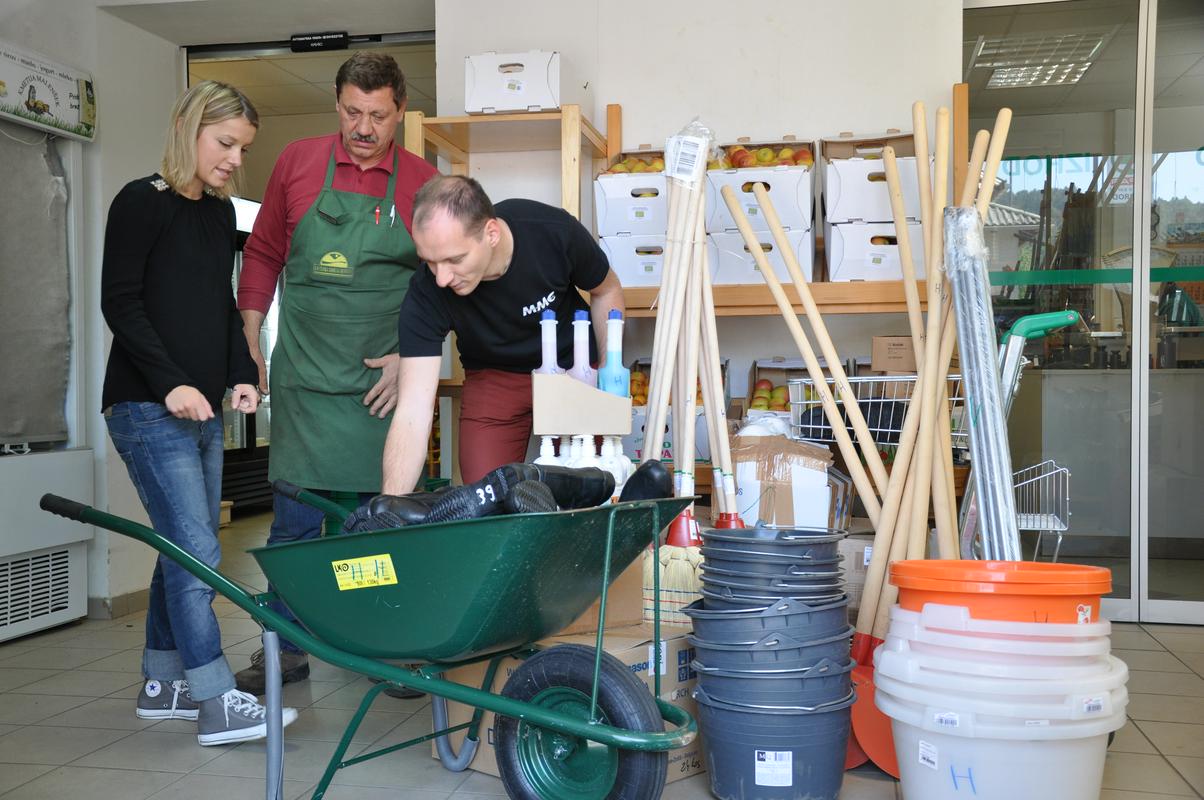
Those houses which are drying are empty. All the furniture is being burnt outside by the locals. Everything has fallen apart, everything is destroyed. Those houses which are still under water will have to be demolished. People are calm and have come to terms with their fate. Nature is dead. All that remains and is being dried will take quite some time to return to normal.
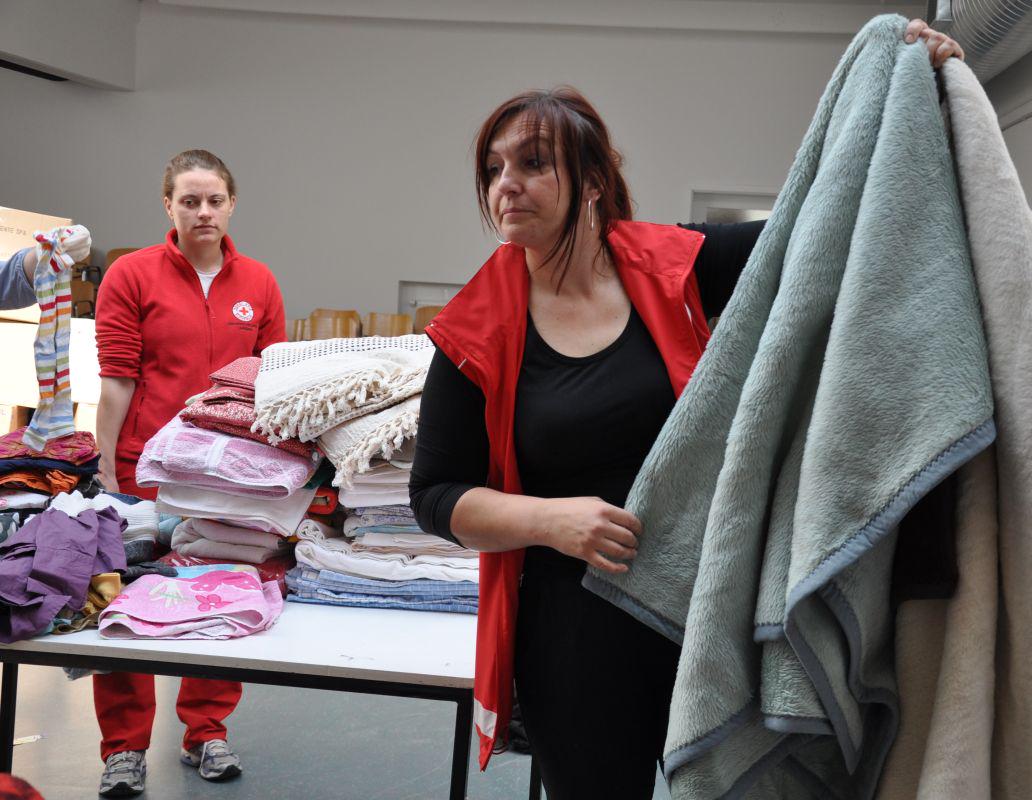
All credit to the volunteers', we've been here for 14 days. Especially to the Accommodation Unit and Red Cross First Aid Unit, to all the ladies and gentlemen from our local Red Cross organizations, and to all the outside volunteers. We couldn't imagine such an overwhelming humanitarian response. Everyone at the collection centers, like the ones in Medvode and at the Serbian Orthodox Church, works as a volunteer. They've taken a lot of aid down there, and that included a great number of volunteers. I admire them. Although we all have bloodshot eyes… that humanitarianism, I don't know, it gives you a special feeling.
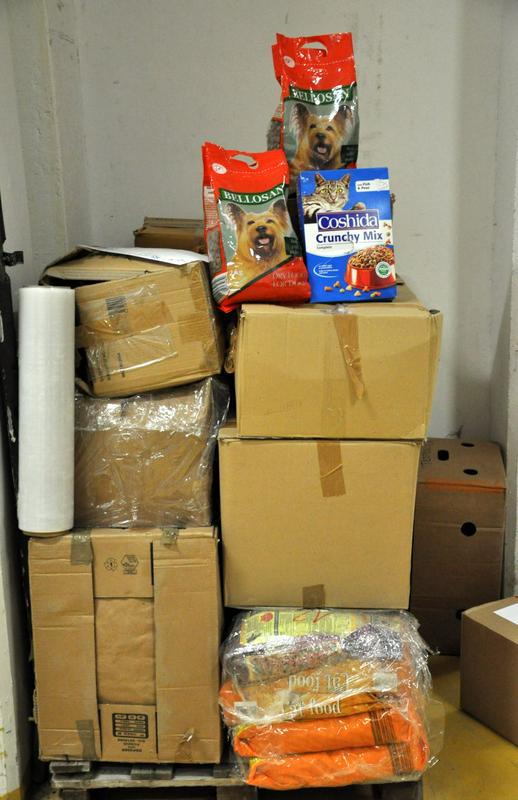
Slovenian Civil Guard volunteers and firefighters were among the first to help the flood affected regions in Croatia, Bosnia and Herzegovina, and Serbia. The catastrophic floods covered an area larger than the size of Slovenia. "What happened down there stays down there," is the way a firefighter politely turned down my request for an interview. "You’ll understand… we don't talk about that, not even with the other guys," he explained.
But here and there you hear stories of the difficult conditions in which flood victims were being rescued. You hear about the swarms of mosquitoes, snakes, decaying animal corpses and the stench of sewage. The people there have gotten used to those everyday smells, which have erased the spring awakening of the blooming linden and bushy elder. The earth is desolate. As far as your eyes can see across the flooded region, all there is is devastation.
"The scene was horrible," remembers Admira Pervić, a work organizer at the Slovenian Red Cross warehouse in Ljubljana. On Saturday, together with a team of the Slovenian Red Cross, she delivered aid to the flood stricken Orašje in Bosnia and Herzegovina. "Everything was horrible from the moment we entered Orašje. There were lots of sand bags and the stench of sewage. When we arrived there I had a mask, but I just couldn't put it on as none of the locals had masks. The thought of them breathing in all that and me wearing a mask for an hour - my conscience wouldn't allow it. After a while I got used to the stench and it wasn't that horrible any more. But the more you make your way towards the center of the village, it only gets worse."
Walls and roofs are all that remain from the houses
The Slovenian Red Cross delivered aid to Bosnia and Herzegovina at three locations. Two of those were at relief centers, where due to overcrowding the aid had to be stored in basements. The third aid convoy was delivered directly to the flood stricken region, where Admira Pervić also helped: "We came to a place where there was no more flood water, so we were able to give the aid directly into the hands of the victims. We unloaded everything in a local school building. People then transferred the aid with tractors and boats to other villages and houses, where people live on second floors or in attics. In some places waters are still two and a half meters high. Older people don't want to leave their homes."
Pervič also explained that walls and roofs were all that remained from the houses. "Those houses which are drying are empty. All the furniture is being burnt outside by the locals. Everything has fallen apart, everything is destroyed. Those houses which are still under water will have to be demolished. People are calm and have come to terms with their fate. Nature is dead. All that remains and is being dried will take quite some time to return to normal," adds Mrs. Admira Pervič. During the interview she wouldn't allow to be overwhelmed by her feelings, but in her eyes you could clearly see how she felt.
Every aid isn't good aid
The most difficult part is still coming. That's what those who have returned from the flood affected regions in Bosnia and Herzegovina, Serbia and Croatia say. According to some estimates anywhere from three months to half a year will be needed to conduct a basic clean-up operation in the flood-hit region. The earth will remain barren for at least two more years. A very long period for a country where many locals depend on agriculture.
Slovenia's Red Cross has collected more than 200.000 euros for the flood victims through voluntary contributions by Slovenian citizens and businesses. Last week it transferred to each of its Red Cross twin organizations in Bosnia and Herzegovina and Serbia 75.000 euros. The Slovenian Red Cross also collected large amounts of material aid. Between the 19th and 29th of May it sent 127 aid packages, or 500 tonnes of aid, to Bosnia and Herzegovina. Between the 20th and 29th of May it sent 26 aid packages or 70 tonnes of aid to Serbia.
"In the first wave of help we handed out drinking water and food to those in the flood-hit regions. Now, when the water is slowly receding, people are mostly in need of bed linen, blankets, sleeping bags and folding beds as they have nowhere to sleep. They also need hygiene products, cleaning detergents and cutlery. In most areas there already is drinkable water, however water filters and especially cleaning products are still needed," warns the technical co-worker at the Ljubljana Red Cross, Špela Kenda. Together with Admira Pervić she was also part of the Slovenian Red Cross team in Orašje.
We can't neglect the fact that the response of Slovenia's citizens was overwhelming and beyond all expectations. Slovenians did donate many useful things, but Špela Kenda stresses that "when donating humanitarian aid certain rules have to be respected. Only then will we have done something good." And there was plenty of good in the Ljubljana Red Cross collection center. From blankets to bed linen, from nicely packed new towels to folding beds and toys for children. Many people also donated canned food and water. Mrs. Admira Pervič was especially happy that some even remembered the animals. Quite a few people brought kibble and canned food for all the four legged house pets.
A new truck full of aid will set off on Friday afternoon. Collecting aid for the flood victims will continue. The Ljubljana Red Cross appeals to all those who still aren't sure what to donate, to look at the list of most needed items which has been published on their web page, or give them a call. You can always also check the websites of the Red Cross organizations in Bosnia and Herzegovina and Serbia, where you can find all the latest information.
Photographs by Reuters (devastation in Topčič Polje, Bosnia and Herzegovina, and in Krupanj, Serbia) and by Katja Štok (Ljubljana Red Cross collection center):
The main principle of humanitarian aid is to offer help with regards to the needs of the one we're trying to help. Although it sounds harsh, everything we hand over isn't good aid. For example clothes. We don't send clothes if we don't receive information from the field that clothes are needed. They have nowhere to store them. By sending clothes, we would only put more burden on them than actually do something good.
Those houses which are drying are empty. All the furniture is being burnt outside by the locals. Everything has fallen apart, everything is destroyed. Those houses which are still under water will have to be demolished. People are calm and have come to terms with their fate. Nature is dead. All that remains and is being dried will take quite some time to return to normal.
All credit to the volunteers', we've been here for 14 days. Especially to the Accommodation Unit and Red Cross First Aid Unit, to all the ladies and gentlemen from our local Red Cross organizations, and to all the outside volunteers. We couldn't imagine such an overwhelming humanitarian response. Everyone at the collection centers, like the ones in Medvode and at the Serbian Orthodox Church, works as a volunteer. They've taken a lot of aid down there, and that included a great number of volunteers. I admire them. Although we all have bloodshot eyes… that humanitarianism, I don't know, it gives you a special feeling.




















































